- Accessibility Options:
- Skip to Content
- Skip to Search
- Skip to footer
- Office of Disability Services
- Request Assistance
- 305-284-2374
- High Contrast
- School of Architecture
- College of Arts and Sciences
- Miami Herbert Business School
- School of Communication

School of Education and Human Development
- College of Engineering
- School of Law
- Rosenstiel School of Marine, Atmospheric, and Earth Science
- Miller School of Medicine
- Frost School of Music
- School of Nursing and Health Studies
- The Graduate School
- Division of Continuing and International Education
- People Search
- Class Search
- IT Help and Support
- Privacy Statement
- Student Life

- Search Site
- Department of Educational and Psychological Studies
- Department of Kinesiology and Sport Sciences
- Department of Teaching and Learning
- Accreditation
- Master's Programs
- Doctoral Programs
- Bachelor's Programs
- Online Programs
- Certificates
- Degrees by Department
- Undergraduate
- Administration
- Emeritus Faculty
- International Students
- Organizations
- Job & Internship Openings
- Publications
- Social Media
- GIVE TO SEHD
- Alumni & Volunteers
- Community Partners
- Friends & Giving
- by Department
- Bachelor's degrees
Master's Degrees
- Doctoral Degrees
- Listening Exercise
- Communications

Educational and Psychological Studies
- - Counseling, M.S.Ed.
- - Higher Education Administration, M.S.Ed.
- - Data Analytics and Program Evaluation, M.S.Ed.
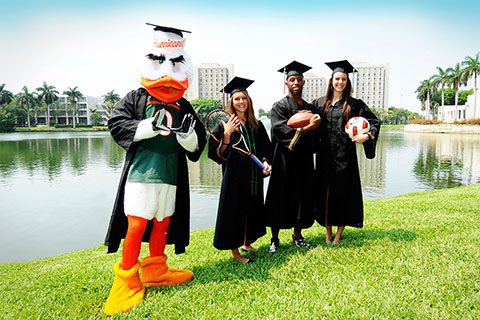
Kinesiology and Sport Sciences
- - Applied Physiology, M.S.Ed.
- - Athletic Training, M.S.AT.
- - Sport Administration, M.S.Ed.
- - Sport Administration (Online), M.S.Ed.
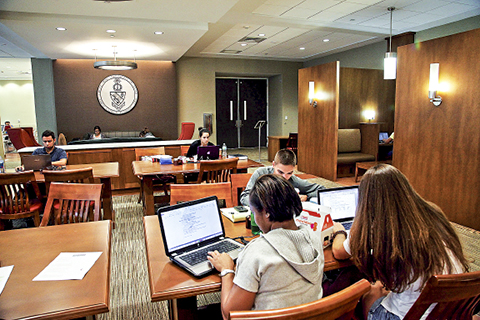
Teaching and Learning
- - Applied Learning Sciences, M.S.Ed.
- - Applied Learning Sciences (Online), M.S.Ed.
- - Education and Social Change, M.S.Ed.
- - Special Education, M.S.Ed.

- 5202 University Drive Merrick Bldg. Rm. 312 Coral Gables , FL 33124
- 305-284-3711 305-284-3711
- Academic Calendar
- Alumni & Friends
- Medical Center
- Hurricane Sports
- Parking & Transportation
- social-facebook
- social-twitter
- social-youtube
- social-instagram
Copyright: 2024 University of Miami. All Rights Reserved. Emergency Information Privacy Statement & Legal Notices
Individuals with disabilities who experience any technology-based barriers accessing the University’s websites or services can visit the Office of Workplace Equity and Inclusion .
- Skip to Content
- Catalog Home
- Institution Home
- School of Architecture
- College of Arts & Sciences
- School of Business Administration
- School of Communication
- School of Education & Human Development
- College of Engineering
- School of Law
- Rosenstiel School of Marine & Atmospheric Science
- Miller School of Medicine
- Frost School of Music
- School of Nursing & Health Studies
- The Graduate School
- Division of Continuing & International Education
- Search Miami.edu Search
- People Search
- Department Search
- Course Search
- Student Life
Registrar's Office
- Graduate Academic Programs >
- Education and Human Development >
- Teaching and Learning >
- M.S.Ed. in Education and Social Change
- General University Information
- Undergraduate Academic Programs
- Architecture
- Arts and Sciences
- Communication
- Educational and Psychological Studies
- Kinesiology and Sport Sciences
- Ed.D. in Applied Learning Sciences
- Ed.D. in Applied Learning Sciences (Online)
- M.S.Ed. in Applied Learning Sciences
- M.S.Ed. in Applied Learning Sciences (Online)
- M.S.Ed. in Special Education
- Ph.D. in Teaching and Learning
- Engineering
- Interdisciplinary
- Marine, Atmospheric, and Earth Science
- Nursing and Health Studies
- Law Academic Programs
- Graduate Student Handbook for UOnline Students
- Special Programs
- Program Index
- Course Listing
- Previous Bulletin Archives
https://tal.edu.miami.edu/graduate/masters/esc-msed/index.html
The Education and Social Change program’s conceptual framework focuses on the world of education beyond classroom walls, the classroom context of teaching, and the students in classrooms, comprising a holistic, developmental approach across the three areas. Overall, the goals of the program track are to improve instruction for diverse populations, to prepare teachers for leadership roles within their schools, and to develop capacity to lead future change efforts in support of public education.
The Education and Social Change M.S. Ed. program track is made up of 10 courses (3 credits each) or 30 credits. Following the University of Miami's policies for credit transfer, it is possible to transfer in and apply up to six (6) graduate credit hours from an accredited institution's similar course content listed below to meet the program's 30-credit requirement for degree completion. It is possible to complete up to six additional credits of supervised teaching experience to total 36 credit hours. See graduate program advisor for guidance.
Application Requirements
Admission to all graduate-degree concentrations in the School of Education and Human Development is based on the recommendation of the faculty. Admissions decisions are based on faculty review of the following general requirements that apply to all Graduate Programs in the School as well as specific documents listed under each concentration.
Applicants must:
- complete an online application and submit the required application fee;
- provide official transcripts showing completion of a bachelor’s degree from an accredited institution and an acceptable undergraduate grade point average. A minimum of 3.0 undergraduate GPA is required. Digital official transcripts from every institution attended by an applicant, whether or not the applicant completed a degree program at the institution, are required (please send in digital format to [email protected]);
- provide three letters of recommendation that address the issues and meet the criteria established by the program being applied to;
- provide a 1500-word essay response to a writing prompt addressing a current issue in education (see program website);
- take part in an admissions interview (required by some programs); and
- exhibit personal and professional experiences and characteristics that are relevant to the profession and/or field and/or degree program for which the application is being submitted.
Master of Science in Education (M.S.Ed.)
International applications.
All international applications must provide additional information and meet additional requirements as required by the UM Graduate School and the Office of International Student and Scholar Services. For an appropriate link to these requirements, please visit the International Student and Scholar Services website.
Admission Decision
Once an applicant has been admitted to graduate study, that individual should meet with the faculty advisor who was appointed to serve in that capacity and whose name appears in the admissions letter. This advisor will help the student enroll in courses that are appropriate to the program; to develop and to refine a Course Sequence Plan that must be on file in the Office of Graduate Studies by the end of the first semester of enrollment.
Honor Code/Handbook of Policies and Procedures
The School of Education and Human Development follows the Graduate School’s Honor Code. All students are required to review the Graduate Student Honor Code and the School of Education and Human Development’s Handbook of Policies and Procedures for Graduate Students and submit the signed Acknowledgement of Receipt located on page 3 by the end of their first semester of enrollment.
Curriculum Requirements
See Graduate Program Advisor for guidance.
Sample Plan of Study
This is a sample Plan of Study. Your actual course sequence may vary depending on your previous academic experience as well as current course offerings. Students should meet with their academic advisor each semester to determine the appropriate course selection.
Social Change Track Example
The mission of the School of Education and Human Development (SEHD) is to produce knowledge and prepare the next generation of leaders, researchers, and agents of change and well-being in education and the community. The Education and Social Change Master’s degree’s goals and objectives mirror the SEHD’s mission statement by focusing on educational policy systems at the federal, state, and local levels, as well as providing instructional opportunities to learn in order to promote equity and social justice in public schools and classrooms. This Master’s in Education program in the Teaching and Learning (TAL) department focuses on teaching in urban contexts to culturally and linguistically diverse students. The Education and Social Change (ESoC) program track offers the graduate coursework required by the Florida Department of Education (FDOE) to fulfill Full Certification requirements when the teacher candidate has secured a FDOE-issued Temporary Certificate. No formal background in education or teaching experience is required. The ESoC program is for veteran and novice teachers, providing cutting edge theoretical and practical understandings to teaching and learning for social justice and equity in diverse classroom settings. Additionally, the program partially fulfills state teacher certification requirements for novice teachers with a FDOE Temporary Teaching Certificate.
The ESoC program coursework will build the teaching, leadership, and advocacy skills of graduates to become more effective teachers of diverse students and lead efforts that support public education and equitable opportunities for all public school students. Upon completion of the program, students will have the knowledge and capacity needed to advocate, create and lead social change efforts in education.
Student Learning Outcomes
- Students will demonstrate knowledge of diversity from ecological, multicultural, and global perspectives.
- Students will be able to communicate well in oral, written, and digital media formats.
- Students will demonstrate knowledge of instructional practices for diverse learners and a Systems Change approach to education reform efforts.

Office of the University Registrar
- 1306 Stanford Drive
- The University Center Room 1230
- Coral Gables, FL 33146
- [email protected]
- Parking & Transportation
Copyright 2023-2024 University of Miami. All Right Reserved. Emergency Information Privacy Statement & Legal Notices
Print Options
Print this page.
The PDF will include all information unique to this page.
PDF of the entire 2022-2023 Academic Catalog.
- Accessibility Options:
- Skip to Content
- Skip to Search
- Skip to footer
- Office of Disability Services
- Request Assistance
- 305-284-2374
- High Contrast
- School of Architecture
- College of Arts and Sciences
- Miami Herbert Business School
- School of Communication
- School of Education and Human Development
- College of Engineering
- School of Law
- Rosenstiel School of Marine, Atmospheric, and Earth Science
- Miller School of Medicine
- Frost School of Music
- School of Nursing and Health Studies
- The Graduate School
- Division of Continuing and International Education
- People Search
- Class Search
- IT Help and Support
- Privacy Statement
- Student Life

- Search Site
- Department of Educational and Psychological Studies
- Department of Kinesiology and Sport Sciences
Department of Teaching and Learning
- Faculty & Staff
- Undergraduate
- Organizations
- Applied Learning Sciences - M.S.Ed.
- Education and Social Change - M.S.Ed.
- Special Education - M.S.Ed.
- Listening Exercise
- Communications
- Graduate Programs
Before applying, contact [email protected] for information on possible start dates.
The 30-credit MSED in Applied Learning Sciences focuses on human learning, whether alone or in social settings.
The MSEd program in the Applied Learning Sciences will provide people across a broad array of fields with the intellectual tools to (re)think about how they interact with subordinates, trainees, mentees, and students as learners and to (re)think their own roles as being that of a teacher where teachers design, implement, and evaluate the impacts of learning environments for their students.
As a result of the MSEd program, graduates will:
- Be able to assess learners' initial knowledge as regards to what said learners are supposed to understand;
- Be able to design and implement learning environments that will help learners to learn and to understand their intended outcomes; and,
- Be able to evaluate and modify learning environments against how well learners achieved their own learning outcomes.
Student Learning Outcomes
The program’s three specific foci, which students are expected to integrate in a culminating applied project, are:
- Learning: how people, as individuals, groups, or parts of an organization, learn;
- Design: the design, implementation, and revision of learning environments that enhance human learning; and
- Assessment: the assessment of learning and the evaluation of individual, social, technological, and design factors that advance or impede learning.
Application Requirements
Admission to all graduate-degree concentrations in the School of Education and Human Development is based on the recommendation of the faculty. Admissions decisions are based on faculty review of the following general requirements that apply to all Graduate Programs in the School as well as specific documents listed under each concentration.
Applicants must:
- Graduate Record Exam (GRE) requirements may be waived for applications to Spring 2021 and following, pending final approvals. However, if the GRE is required for admissions, applicants must achieve acceptable scores on the GRE taken within the past five years. International applicants whose native language is not English or applicants whose degrees are from a non-U.S. University must pass the Test of English as a Foreign Language (TOEFL) or International English Language Testing Systems (IELTS) and the GRE;
- provide official transcripts showing completion of a bachelor’s degree from an accredited institution and an acceptable undergraduate grade point average. A minimum of 3.0 undergraduate GPA is required. Official transcripts from every institution attended by an applicant, whether or not the applicant completed a degree program at the institution, are required;
- provide three letters of recommendation that address the issues and meet the criteria established by the program being applied to;
- provide a personal statement that addresses the mission and purpose of the program being applied to;
- take part in an admissions interview (required by some programs); and
- exhibit personal and professional experiences and characteristics that are relevant to the profession and/or field and/or degree program for which the application is being submitted.
Master of Science in Education (M.S.Ed.)
In addition to the factors listed as general requirements for all applications to the SEHD’s graduate programs, consideration for admission to the M.S.Ed. program will include the following:
- For some M.S.Ed. programs in TAL: Teachers with at least three years full-time teaching experience may apply for a GRE waiver for programs in the Department of Teaching and Learning. An application for waiver of the GRE requirement may be found on the SEHD web site. Teachers who apply for a GRE waiver must submit a 3-page essay on an important topic in education.
International Applications
All international applications must provide additional information and meet additional requirements as required by the UM Graduate School and the Office of International Student and Scholar Services. For an appropriate link to these requirements, please visit the Graduate School website.
Admission Decision
Once an applicant has been admitted to graduate study, that individual should meet with the faculty advisor who was appointed to serve in that capacity and whose name appears in the admissions letter. This advisor will help the student enroll in courses that are appropriate to the program; to develop and to refine a Course Sequence Plan that must be on file in the Office of Graduate Studies by the end of the first semester of enrollment.
Honor Code/Handbook of Policies and Procedures
The School of Education and Human Development follows the Graduate School’s Honor Code. All students are required to review the Graduate Student Honor Code and the School of Education and Human Development’s Handbook of Policies and Procedures for Graduate Students and submit the signed Acknowledgement of Receipt located on page 3 by the end of their first semester of enrollment.

- 5202 University Drive Coral Gables , FL 33124
- 305-284-8691 305-284-8691
- Academic Calendar
- Alumni & Friends
- Medical Center
- Hurricane Sports
- Parking & Transportation
- social-facebook
- social-twitter
- social-youtube
- social-instagram
Copyright: 2024 University of Miami. All Rights Reserved. Emergency Information Privacy Statement & Legal Notices
Individuals with disabilities who experience any technology-based barriers accessing the University’s websites or services can visit the Office of Workplace Equity and Inclusion .
- Accessibility Options:
- Skip to Content
- Skip to Search
- Skip to footer
- Office of Disability Services
- Request Assistance
- 305-284-2374
- High Contrast
- School of Architecture
- College of Arts and Sciences
- Miami Herbert Business School
- School of Communication
- School of Education and Human Development
- College of Engineering
- School of Law
- Rosenstiel School of Marine, Atmospheric, and Earth Science
- Miller School of Medicine
- Frost School of Music
- School of Nursing and Health Studies
- The Graduate School
- Division of Continuing and International Education
- People Search
- Class Search
- IT Help and Support
- Privacy Statement
- Student Life

- News and Events
- Doctor of Education Applied Learning Sciences
- Master of Science in Education Applied Learning Sciences
- Master of Science in Education Sport Administration
- Master of Public Administration
- Master of Music in Media Scoring and Production
- Master of Science in Finance
- Master of Science in Data Analytics and Program Evaluation
- Master of Arts in Live Entertainment Management
- Master of Arts in Music Industry
- Master of Arts in Popular Music Pedagogy
- Data Management and Statistical Analysis
- Corporate Finance
- Financial Decision Making
- Artist Development
- Arts Leadership
- Arts Management
- Arts Presenting Fundamentals
- Legal Aspects of the Music Business
- Music Business Fundamentals
- Music Entrepreneurship
- Music Rights Administration and Licensing
- Tour and Live Entertainment Administration
- Student Experience
- Deadlines and How to Apply
- International
- Tuition and Aid
- Current Students
- Online Degrees
- Online Certificates
- Online Graduate Degrees
- Master of Science in Education in Applied Learning Sciences

Earn a Masters in Science Courses Online
The University of Miami’s Applied Learning Sciences program offers expert insight into the theory behind learning environments and knowledge of curriculum design that can be immediately applied to the workplace.
With an Applied Learning Sciences degree, you can excel in traditional educational settings and beyond. Graduates can pursue a career in formal education environments such as universities and K-12 schools with roles in curriculum development and instructional design. Unlike other post-graduate education programs, UOnline graduates are also prepared for professional learning design, training, organizational development roles in the corporate or nonprofit world. Graduates with an interest in entrepreneurship are equipped to develop learning products or technologies for EdTech companies or start their own ventures.
Students will graduate with a firm understanding of both formal and informal learning environments, ready to pursue teaching, training, and development roles in a range of industries. Are you ready to join us?
Program At A Glance
7 weeks per course
20 months to complete
SACSCOC accredited University
GRE waived for eligible applicants
1 cumulative project
Explore More About The Program
The University of Miami MSEd in Applied Learning Sciences centers on human learning, with a special focus on rethinking interactions with learners as well as the roles of educators in developing impactful learning environments. Explore more about our faculty and the curriculum below.
Program Curriculum Program Faculty
*This is the total estimated cost of the program before potential financial assistance. †Based on the UM 2023-2024 UOnline Tuition and fees rate. Tuition and fees are subject to change.
You can learn more about financial aid opportunities available to you here .
Summer 2024 Application Deadline
For students who wish to start classes in the Applied Learning Sciences program on May 6, 2024, the application deadline is April 22, 2024. Download the UOnline Application Checklist for a step-by-step guide through the simplified application process.

Don Alger, Alumnus

Transform Your Future
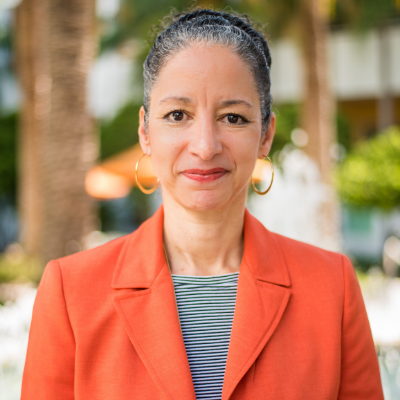
Laura Kohn-Wood, Dean
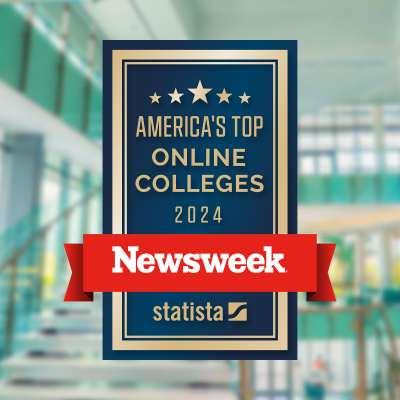
The UM Difference
A message from professor jennifer kahn.
"The applied nature of our program makes us unique. The goal of our program is for students to be able to design and improve learning experiences in context, such as in their workplaces or in the design of new learning technologies, which they learn to do iteratively through our courses and the culminating Capstone project."
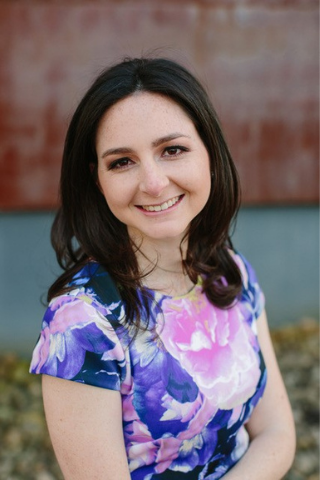
UOnline Programs
- EdD Applied Learning Sciences
- MSEd in Applied Learning Sciences
- MSEd in Sport Administration
- MMus in Media Scoring and Production
- MS in Data Analytics and Program Evaluation
- MS in Finance
- MA in Popular Music Pedagogy
- Master of Public Administration (MPA)
- MA in Live Entertainment Management
- MA in Music Industry
- Online Graduate Certificates
About UOnline
- All About UM Online Master's Degrees
- Alumni Network
- Career Services
UOnline Resources
- Student Portal
- Student Services
- 1-800-411-2290
- social-facebook
- social-instagram
- social-twitter
- social-youtube
- social-linkedin
Copyright: 2024 University of Miami. All Rights Reserved. Emergency Information Privacy Statement & Legal Notices
Individuals with disabilities who experience any technology-based barriers accessing the University’s websites or services can visit the Office of Workplace Equity and Inclusion .
- Accessibility Options:
- Skip to Content
- Skip to Search
- Skip to footer
- Office of Disability Services
- Request Assistance
- 305-284-2374
- High Contrast
- School of Architecture
- College of Arts and Sciences
- Miami Herbert Business School
- School of Communication
- School of Education and Human Development
- College of Engineering
- School of Law
- Rosenstiel School of Marine, Atmospheric, and Earth Science
- Miller School of Medicine
- Frost School of Music
- School of Nursing and Health Studies
- The Graduate School
- Division of Continuing and International Education
- People Search
- Class Search
- IT Help and Support
- Privacy Statement
- Student Life

- Search Site
Department of Educational and Psychological Studies
- Department of Kinesiology and Sport Sciences
- Department of Teaching and Learning
- Certificates
- Faculty & Staff
- Undergraduate
- Organizations
Higher Education Administration M.S.Ed.
- Admission Requirements
- Required Coursework
- Student Outcomes
- Higher Ed Practicum
- Alumni Reflections
- Track 1: Enrollment Management
- Track 2: Student Life & Development
- Track 3: Institutional Research & Policy Analysis
- Program History
- Listening Exercise
- Communications
- Graduate Programs
Develop strategy, versatility, and confidence in one of three innovative tracks.
Confront the issues.
- Skilled professionals emerge from our M.S.Ed. program well-prepared for diverse roles in college and university administration and ready to tackle today’s challenges from a broad-based, highly informed perspective.
- Working pros who already have master’s degrees can earn one of our certificates in Enrollment Management or Student Life & Development to extend skills and credentials.
Shape the Future
Because of our strong emphasis on research and theory, our graduates are highly prepared not only as practitioners but also as potential candidates for Ph.D. and other doctoral studies.
- We also are known for stressing communication skills, especially strong writing, and students are regularly required to write case-study analyses based in research and theory.
- Our track record is exemplified by our graduates: A great majority (89%) in 2017 acquired middle-management positions in higher education or advanced at their current institutions, and 11% pursued graduate studies.
- The University of Miami was a pioneer in strategic enrollment management and started the nation’s first EM-centered program two decades ago.
- Today, we’re the only higher education graduate program in which EM is at the base of every concentration – as well as the only program that focuses on predictive modeling.
- More than 90% of our master’s students add value to their M.S.Ed. by concurrently earning a certificate outside their chosen track.
- Practical experience opportunities in our MSEd program build students’ skills, confidence, and resumes. Graduate administrative assistantships in Student Affairs offices foster the teamwork, strategic planning, and information flow of effective higher education administration and typically pay $18,000/year in regular stipends. They are limited, so apply here . Similarly, in the EPS 754 course, students do yearlong practicums in diverse offices at UM and other institutions that emphasize real-world theoretical applications and reflective analysis.
Choose Your Path
Interested in enrollments? Student life? Research to guide policy? Here's a brief downloadable overview of all 3 tracks .

Enrollment Management
(33 credit hours) is an interdisciplinary collaboration of the School of Education & Human Development and the Division of Enrollment Management, integrating theory, research and effective communication with applications to daily practice. This track, which includes courses in the School of Business Administration, instills understanding of enrollments from first contact with prospective students through matriculation, graduation and beyond with an eye on today’s most pressing issues. Research, teamwork, strategic planning and a capstone project are emphasized.

Student Life & Development
(36 credit hours) provides a solid foundation for supporting undergraduate student success in the transition from high school and adjustment to college, and in how college ultimately affects students in psychosocial, cognitive, moral and other ways. This track instills deep understanding of diverse college students, their families and their communities, and promotes ways to enhance academic achievement and ensure persistence and graduation. A practicum is required; opportunities include student affairs, financial aid, career planning, academic advising and support, housing, dining, alumni and more.

Institutional Research
(33 credit hours) focuses on conducting research to increase the effectiveness of postsecondary institutions. Practitioners in this growing field serve colleges, universities and other educational systems in many different capacities. Studies extend beyond integrating research into administrative and policy initiatives to understanding state and federal policies, higher education foundations, statistics and data analytics. A hands-on practicum in institutional research completes the experience.

- 5202 University Drive Coral Gables , FL 33124
- 305-284-3711 305-284-3711
- Academic Calendar
- Alumni & Friends
- Medical Center
- Hurricane Sports
- Parking & Transportation
- social-facebook
- social-twitter
- social-youtube
- social-instagram
Copyright: 2024 University of Miami. All Rights Reserved. Emergency Information Privacy Statement & Legal Notices
Individuals with disabilities who experience any technology-based barriers accessing the University’s websites or services can visit the Office of Workplace Equity and Inclusion .
Info for: (choose one) Tap Enter button to open the role navigation Tap Enter button to close the role navigation
Need Answers?
Email, Phone, and Addresses
Explore Degrees
- Diversity, Inclusion, Justice, Equity (dije)
- Michigan Education Magazine
- Mission & Vision
- Rooms & Floor Plans
- Courses & Syllabi
- Tuition & Funding
- Center for the Study of Higher and Postsecondary Education (CSHPE)
- Combined Program in Education and Psychology (CPEP)
- Educational Studies (ES)
- Educator Preparation Program (EPP)
- Joint Program in English and Education (JPEE)
- Learning, Equity, and Problem Solving for the Public Good (LEAPS)
- Bachelor's
- Master's
- Teacher Certification
- Other Certificates & Endorsements
- EdHub for Community & Professional Learning
- Career Services
- Marsal School in Action
- Student Organizations
- James A. Kelly Learning Lever Prize
- Center for Education Design, Evaluation and Research (CEDER)
- Detroit P–20 Partnership
- Featured Projects & Partners
- Grants & Awards
- Prospective Students
- Admitted Students
- Current Students
- Visiting Scholars

Master's Degrees
The Design and Technologies for Learning Across Culture and Contexts (DATL) concentration in the Master of Arts in Educational Studies program focuses on preparing professionals for designing a wide range of learning environments in formal and informal settings. Design takes many forms and can span the design of technology, curriculum, new pedagogical approaches, and even innovative spaces for learning.
Professional trajectories of graduates include:
- Media specialists
- Curriculum designers
- Software design
- Non-profits
- Technology startups
- Online learning/Learning experience design
- Museums/Science and Technology Centers
- Further graduate study
Career outcomes of recent graduates:
- 2022 Educational Studies Master's Survey Highlights
- 2021 Educational Studies Master's Survey Highlights
- 2020 Educational Studies Master's Survey Highlights
The Educational Equity, Justice, and Social Transformation (EEJST) concentration in the Master of Arts in Educational Studies program is designed to provide students with a foundation in the social, cultural, economic, historical, and political foundations of schooling. Students critically examine educational contexts, practices, and policies rooted in injustice, whiteness, and oppression in educational systems to unpack how these systems have fostered social inequity and work toward justice-driven change.
- Non-profit organizational leadership in education and social service professions
- Pre-K-12 school and district leadership
- Research & development
- College access program coordination
- Preparation to become university faculty members/researchers
- Policy analysis
- Curriculum development
If your career objective is integrating business acumen with educational expertise to effect meaningful improvements in our education system, the Marsal Family School of Education and the Stephen M. Ross School of Business offer a unique dual-degree program leading to the Master of Arts in Educational Studies and the Master of Business Administration degrees.
- Leadership in K-12 educational organizations, government organizations, non-profit organizations, and other agencies focused on issues of educational improvement and reform
- Roles focused on improving education
- Educational entrepreneurship
The Research for Educational Improvement (REI) concentration in the Master of Arts in Educational Studies program is designed to prepare students for entry-level positions in research organizations, centers, or projects engaged in evaluation research, or as research support staff in formal and informal educational settings where education professionals are engaged in improving practice and policy.
- Entry-level positions in research organizations, centers, or projects engaged in evaluation research
- Research support staff in formal and informal educational settings where education professionals are engaged in improving practice and policy
- Future doctoral study
The Master of Arts in Educational Leadership and Policy (ELP) is a rigorous and comprehensive program that prepares graduates with the entry-level skills required to lead and shape educational institutions and policies at local, national, and global levels. The program also allows teachers and current or aspiring building leaders to continue their work at the building or district level, returning to those settings with skills that focus on reform and justice.
- Classroom teaching
- Department chair
- Assistant principal
- Various central office roles
- Curriculum design and development
- Policy analysts and other policy-centered roles
- Program administrators, directors, coordinators, and specialists
- Non-profit leadership roles
- 2021 Educational Leadership and Policy Master's Survey Highlights
The Master of Arts in Higher Education with a focus on Diversity and Social Justice in Higher Education gives students the tools for increasing their knowledge and skills regarding diversity and social justice in higher education. It equips students to address these issues within their careers and other spheres of influence. This concentration cultivates a supportive network of graduate students and faculty who are interested in research and pedagogy around issues of diversity and social justice.
Graduates typically go into these industries
Hiring organizations and job titles.
The Master of Arts in Higher Education program with an individually designed focus provides individuals with a general understanding of higher education as a field of practice and inquiry. The challenges that face higher education require that educators not only adapt to change but also engage in developing a vision of higher education for society. The program aims to prepare you for leadership in shaping the future of higher education. Students generate and apply knowledge on how to advance the role of higher education in supporting the public good and improving institutional practice.
The Master of Arts in Higher Education with a focus on Institutional Research equips students with factual knowledge about postsecondary institutions and systems, research methods used by institutional research professionals, knowledge of the processes and issues affecting institutions, and an understanding of the context and culture of the institutions in which students will work and study.
The Master of Arts in Higher Education with a focus on Management and Organizations considers the organizational dynamics of colleges and universities. This requires a fundamental understanding of the internal workings of higher education and its environment, as well as a thorough grasp of effective management and leadership of higher education organizations.
The Master of Arts in Higher Education and Master of Business Administration dual degree program provides an in-depth examination of both business administration and higher education arenas. The Master of Arts in Higher Education degree provides a deep exposure to educational theory and programmatic flexibility that complements the Master of Business Administration experience.
The Master of Arts in Higher Education and Master of Public Policy program is designed for students interested in broad policy issues that affect higher and postsecondary education, such as state governance and coordination, financial aid funding, and affirmative action in admissions and hiring.
The Master of Arts in Higher Education with a focus on Public Policy helps students grapple with the challenges that face higher education and gain insights on how to develop a vision of higher education for society. Students analyze broad policy issues that affect higher and postsecondary education, such as state governance and coordination, financial aid funding, and affirmative action in admissions and hiring. You will generate and apply knowledge on how to advance the role of higher education in supporting the public good and improving institutional practice.
The Master’s in Higher Education Student Access and Success program focuses on teaching and learning in colleges and universities as they are implemented in many institutional contexts, both inside and outside of traditional classroom settings.
In the Master of Arts in Educational Studies with Elementary Teacher Certification program, students develop the professional and personal knowledge, dispositions, and skills required to engage diverse groups of children in thoughtful learning. The immersive full-time program begins in mid-June and finishes in mid-June the following year.
Out-of-state
In the Master of Arts in Educational Studies with Secondary Teacher Certification program, students participate in university and school-based experiences that enable them to meet the challenges facing today's educators teaching at the junior high and high school levels. The immersive full-time program begins in mid-June and finishes in mid-June the following year. Coursework is completed concurrently with a teaching internship to allow students to explore pedagogies through authentic classroom interactions while being fully supported by field instructors.
The Master of Science in Postsecondary Science Education provides a strong foundation in learning theory and application to support college-level teaching in the sciences. The degree is open only to current doctoral students in the School of Environment and Sustainability and in specific departments in the College of Literature, Science, and the Arts (Astronomy, Biophysics, Chemistry, Ecology and Evolutionary Biology, Geological Sciences, Molecular, Cellular, Developmental Biology, and Physics).
CONNECT WITH US
Admissions & Recruitment [email protected]
610 E. University Avenue Ann Arbor, Michigan 48109-1259
OFFICE HOURS
Monday–Friday 8:00 a.m.–5:00 p.m.
Personalise your experience
Graduate Coursework
Master of Education
- Arrow-right #1 in Education in Australia
- Arrow-right #12 in Education globally
- Course code: MC-ED
Course overview
We are building an exciting new version of the Master of Education for the 2025 intake. More details will be available in July (pending Academic Board approval in June 2024). Watch this space.
- Become an expert in your chosen field of education
- Ideal for educators looking to move into middle or senior positions
- Flexible course with eight specialisation areas
- Research pathway option available
- Fast-track option available for qualified teachers
The Master of Education is designed for a range of education professionals who want to develop or extend their expertise in education so they can move into leadership, specialist or coordinator positions. With eight specialisation areas, ranging from arts education to leadership and management, students have the opportunity to become true leaders in their field of interest. As well as an array of fields, the course offers educators professional learning in a wide range of settings, from early childhood through to vocational and adult education.
Who is the course for?
The Master of Education has been created for the learning needs of teachers or educators looking to specialise their knowledge in a variety of education fields. It will also benefit those currently in wider education-related roles, such as youth workers, policy makers, education administrators or managers, and those in tertiary education.
Watch our Education sector in review: Optimising technology in education webinar recording. Our panel of academic experts and alumni discuss how we can best optimise technology in the education sector. We explore opportunities and barriers that exist for students, staff and practitioners, and how technology can be used to foster better education standards.
Please note: the Master of Education is not a teaching qualification. For information on becoming a teacher, please visit the Become a Teacher page .
Why choose the Master of Education with us?
You’ll be taught by a number of internationally recognised education experts. As well as strong leaders and educators, the course has also been built for practical application in the real world. The capstones allow for work-integrated learning, allowing students to relate assignments back to professional learning in a meaningful way. Once you complete the course, you can take your learnings into a professional setting and make real impact.
The reputation of the University of Melbourne is strong and globally recognised, particularly for education where the Faculty of Education has been regularly ranked #1 in Australia. We are at the cutting edge of teaching and research.
Support in your postgraduate education studies
We take pride in the excellent support we offer our Master of Education students from enrolment, throughout their studies, and beyond. If you are an Indigenous student, we offer a range of support services here at the University of Melbourne via Murrup Barak. You can find out more on the Murrup Barak website .
Related study areas
- Arts, languages and STEM education
- General studies in education
- Global and international education
- Instructional leadership and management
- Psychology and wellbeing
- HOW TO APPLY FOR A MASTER’S DEGREE
Master's Degree
- application for semester 1, session 2024/2025 is now open..
* Deadline for Coursework / Mix Mode is 30 August 2024 * Application for Research Semester 2, Session 2023/2024 is still open until 31 May 2024
1) Applications must be submitted online through our application portal at https://apply.um.edu.my 2) Choose programme(s). 3) Complete your application - Personal details, academic qualifications, etc. 4) Upload document - Passport, photo, academic transcript, certificate, etc. 5) Pay processing fee via Payment Gateway FPX, Debit/ Credit Card, Flywire. Payment of processing fees: (a) Malaysian applicants: RM50.00 (b) International applicants: RM300.00 6) Submit your application and receive acknowledgement of your application via email. 7) Check the application status on the application portal. 8) Accept the offer on the application portal. APPLY Note : Universiti Malaya will not process any incomplete online application including those without processing fees.
Alumni • Vacancy
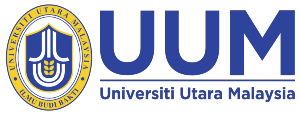
- Application Guidelines
- Postgraduate
- Master Programmes
Master of Education
ADMISSION REQUIREMENTS
a. Bachelor of Education with Honours or equivalent from any institution of higher learning recognized by the UUM Senate with a CGPA of 3.00 or higher; OR b. Bachelor’s Degree with Honours with a CGPA of at least 2.75 and a 3-year teaching experience.
SPECIFIC ADMISSION REQUIREMENT
Applicants for Master of Education specializing in English Language Teaching must possess the following:
a. Local Applicant i. A bachelor’s degree with honours in TESL/TESOL/TEFL/Linguistics/English language or any other related field from any institutions of higher learning institutions recognised by the University Senate; or ii. A bachelor’s degree with honours and have at least three years of teaching experience in English Language; or iii. Any other equivalent qualifications recognised by the University Senate; and iv. A professional qualification (i.e. a diploma or certificate in education).
*Note: Candidates who do not meet the above minimum requirement may be requested to attend an interview by the Academic Committee at the respective Schools.
b. International Applicant
i. A bachelor’s degree with honours in TESL/TESOL/TEFL/Linguistics/English language or any other related field from any institutions of higher learning recognised by the University Senate; or ii. Any other equivalent qualifications recognised by the University Senate; and iii. Fulfil the English language requirement as set by the University Senate with the following sCore:
• 575 in TOEFL; or • 6.5 in IELTS
Applicants for a Master of Education specializing in English Language Teaching must possess:
- a bachelor’s degree with honours in TESL/TESOL/TEFL/Linguistics/English language or any other related field from any institutions of higher learning recognised by the University Senate;or
- a bachelor's degree with honours and have at least 3 years teaching experience in English Language; or
- any other equivalent qualifications recognised by the University Senate; and
- a professional qualification (i.e. a diploma or certificate in education).
ADDITIONAL ADMISSION REQUIREMENT
Students without professional qualification are required to attend and pass the following prerequisite courses with at least a B grade before being allowed to proceed with this programme.
SGDA2103 Philosophy, History and Policy in Education SGDA2113 Psychology of Learning SGDA2123 Sociology of Education
PROGRAMME STRUCTURE
Master of Education is offered in three (3) structures; coursework, coursework and dissertation, and full research.
MODE A: COURSEWORK
Students must fulfil at least 42 credit hours, which comprise the following:
1. Compulsory Courses (12 credit hours) SGDP6113 Research Methodology in Education SGDP6123 Academic Writing for Educational Research SGDP6133 Quantitative Data Analysis in Education SGDP6033 Qualitative Research in Education
2. Core Courses (9 credit hours) SGDC5013 Curriculum and Pedagogy SGDT5113 Information and Media Literacy SGDY5063 Educational and Psychological Measurement and Evaluation
3. Specialisations/Electives courses (15 credit hours)
Curriculum and Instruction SGDC5023 Evaluation of Teaching SGDC5133 Models of Instruction SGDC5043 Curriculum Design and Development: Theory and Practice SGDC6143 Curriculum Studies SGDC5053 School–Based Curriculum Development OR SGDC5063 Curriculum Leadership and Management
Educational Psychology SGDY5013 Human Lifespan Development SGDY5023 Human Learning SGDY5033 Human Motivation SGDY5043 Learning and Individual Differences SGDP6023 Survey Research in Education OR SGDY5053 Adolescent Development OR SGDY5073 Socio-Cultural Theory and Learning OR SGDG5013 School and Society OR Any other relevant courses
Instructional Technology SGDT6033 Instructional Design and Technology SGDT6043 Development of Digital Resources SGDT6123 Instructional Technology Planning Management and Evaluation SGDT6063 Research in Instructional Technology SGDT6083 Seminar in Instructional Technology
English Language Teaching SGDB5013 Fundamentals of ELT SGDB5023 Second Language Acquisition SGDB5063 ELT Curriculum Design and Development SGDB6013 ELT Professional Concerns Seminar SGDB5073 Teaching English to Young Learners OR SGDB5053 Context and Culture in Language Teaching Islamic Education SGDI5043 Philosophy, History and Thought of Islamic Education SGDI5053 Innovation Teaching and Learning in
Islamic Education SGDI5113 Contemporary Issues in al-Quran and al-Sunnah in Education. SGDV5133 Akhlak and Adab SGDI5013 Aqidah and Educational Issues OR SGDI5133 Fiqh Contemporary OR SGDI5143 Leadership and Management in Islamic Education
Moral and Values Education SGDV5013 Values and Moral Development SGDG5013 School and Society SGDV5133 Akhlak and Adab SGDV5143 Values Inculcation through Curriculum SGDV5213 Teaching and Assessment Approaches in Moral and Values Education
Mathematics SGDD5013 Mathematical Knowledge and Thinking SGDD5023 Mathematics Curriculum and Teaching Methods SGDD5033 Engaging Learners for Mathematics Learning SQQP5023 Decision Analysis SQQP5043 Simulation for Decision Making
4. Master’s Project (6 Credit Hours) SGDZ6996 Project Paper
MODE B: COURSEWORK AND DISSERTATION
In order to be conferred Master of Education by coursework and dissertation, students must fulfil 21 credit hours of coursework and 21 credit hours of dissertation. The programme structure is as follows:
2. Specialisations/Electives Courses (9 credit hours) Curriculum and Instruction SGDC5133 Models of Instruction SGDC6143 Curriculum Studies SGDC5023 Evaluation of Teaching OR SGDC5043 Curriculum Design and Development: Theory and Practice OR SGDC5053 School–Based Curriculum Development OR SGDC5063 Curriculum Leadership and Management
Educational Psychology SGDY5023 Human Learning SGDY5033 Human Motivation SGDY5013 Human Lifespan Development OR SGDY5043 Learning and Individual Differences OR SGDP6023 Survey Research in Education OR SGDY5053 Adolescent Development OR SGDY5073 Socio-Cultural Theory and Learning OR SGDG5013 School and Society OR Any other relevant courses
Instructional Technology SGDT6033 Instructional Design and Technology SGDT6063 Research in Instructional Technology SGDT6083 Seminar in Instructional Technology English Language Teaching SGDB5013 Fundamentals of ELT SGDB5023 Second Language Acquisition SGDB5063 ELT Curriculum Design and Development
Islamic Education SGDI5043 Philosophy, History and Thought of Islamic Education SGDI5053 Innovation Teaching and Learning in Islamic Education SGDI5113 Contemporary Issues in al-Quran and al-Sunnah in Education OR SGDV5133 Akhlak and Adab OR SGDI5013 Aqidah and Educational Issues OR SGDI5133 Fiqh Contemporary OR SGDI5143 Leadership and Management in Islamic Education
Moral and Values Education SGDV5013 Moral and Values Development SGDV5213 Teaching and Assessment Approaches in Moral and Values Education SGDV5133 Akhlak and Adab OR SGDV5143 Values Inculcation through Curriculum OR SGDG5013 School and Society
Mathematics SGDD5013 Mathematical Knowledge and Thinking SGDD5023 Mathematics Curriculum and Teaching Methods SGDD5033 Engaging Learners for Mathematics Learning OR SQQP5023 Decision Analysis OR SQQP5043 Simulation for Decision Making
3. Dissertation (21 credit hours) SGDZ69921 Master’s Dissertation
MODE C: RESEARCH
Students are required to:
i. present and defend the proposed research to a committee; ii. present the progress report of research work at colloquiums arranged by the Graduate School; iii. attend a viva voce session to defend the thesis; and iv. submit a written thesis. Students are required to attend and pass the following courses with at least a B grade before being allowed to defend their proposal (i.e. within the first two trimesters of their enrolment):
i. SZRZ6014 Research Methodology; ii. SCLE6014 Academic Writing
+604-928 5299
+604-928 5297, this email address is being protected from spambots. you need javascript enabled to view it., http://ahsgs.uum.edu.my.
- Vision & Mission
- Logo & Emblem
- The University's Mace
- Pro-Chancellor
- Board of Directors
- University Management
- University Senate
- Professors Council
- Chancellery
- VC & DVC's Office
- Registrar's Office
- Organisation Chart
- College of Business
- College of Arts and Sciences
- College of Law, Government and International Studies
- Othman Yeop Abdullah Graduate School of Business
- Awang Had Salleh Graduate School of Arts and Sciences
- Ghazali Shafie Graduate School of Law, Government and International Studies
- Postgraduate Studies Unit, UUM COB
- Academic Affairs
- Teaching & Learning
- Quality Assurance
- Co-Curriculum
- Industrial Training
- UUM Kuala Lumpur Campus
- Undergraduate
- Distance Learning
- International Affairs
- Financial Aid
- Online Payment
- Student Affairs
- One Stop Centre
- Health Services
- IT Services
- Development & Maintenance
- Safety & Security
- Islamic Affairs
- Sports & Recreation
- Student Residential Hall
- Clubs & Associations
- Dining & Cafe
- Attractions
- Research and Innovation Management Centre
- Innovation & Commercialization Centre
- Centre of Excellence (CoE)
- UUM Experts
- UUM Journals
- UUM Conferences

The Department of Education provides several program options for students interested in education, teacher certification and educational leadership.
In this section
- Our Faculty
- Accreditation
- Advisory Board
- Alumni Success
- Teacher Preparation
At the undergraduate level, students may seek a bachelor's degree (AB or BS) leading to elementary certification (K-8) or a Bachelor of Arts in Children and Families. For students seeking certification at the secondary level (6-12) , a planned sequence of professional coursework supplements a bachelor's degree earned from the College of Arts, Sciences, and Letters (CASL). At the graduate level, the department offers several master’s degree programs , an Education Specialist (Ed.S.) and a Doctorate in Education (Ed.D.) .
Students enrolled in teacher certification programs in Michigan are required to pass the Michigan Test for Teacher Certification (MTTC) that corresponds to the intended level of teaching certification and the types of specialty endorsements. The pass rates of all teacher preparation institutions across the state of Michigan on these tests are distributed by the state and publicly available. The “ Annual Summary of State Results ” provided here shows a three-year report on the numbers and percentages of students at University of Michigan-Dearborn who successfully pass the various tests.
Our Academic Programs
Undergraduate programs.
- Children and Families
- Instructional Technology
- Elementary Teacher Certification
- Secondary (Grades 6-12) Certification
Master's Programs
- M.S. in Applied Behavior Analysis
- M.A. in Community Based Education
- M.A. in Early Childhood Education
- M.A. in Education
- M.A. in Educational Leadership (MAEL)
- M.S. in Educational Technology (Online)
- M.A. in Teaching (MAT)
Doctoral and Specialist Programs
- Doctoral Program (Ed.D.)
- Education Specialist Program (Ed.S.)
Certificates
- Applied Behavior Analysis (BCaBA)
- TESOL Certificate
Education in the news

If you want kids to learn music, teach it like a language

K-12 teachers need to understand AI. So do those who train them.

Quan Neloms' school of hip hop

Class of Spring 2023: CEHHS graduate Ezra Houghtby
Featured links.
- Information for Certified Teachers
- Practicum/Student Teaching
- MTTC Information
Department Chair
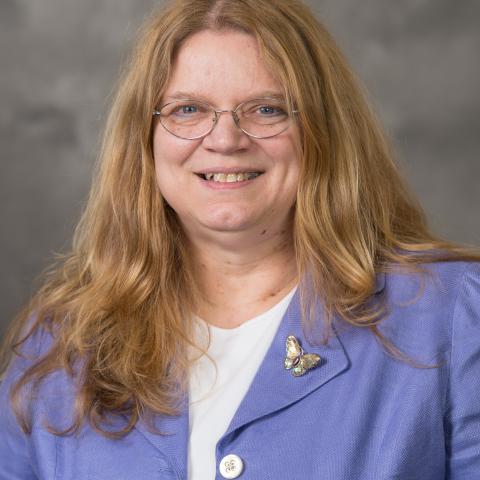
Susan Everett, Ph.D. Interim Chair-Dept. of Education Assistant Dean of Assessment and Accreditation Professor of Science Education [email protected] 313-593-5133
Academic Program Manager
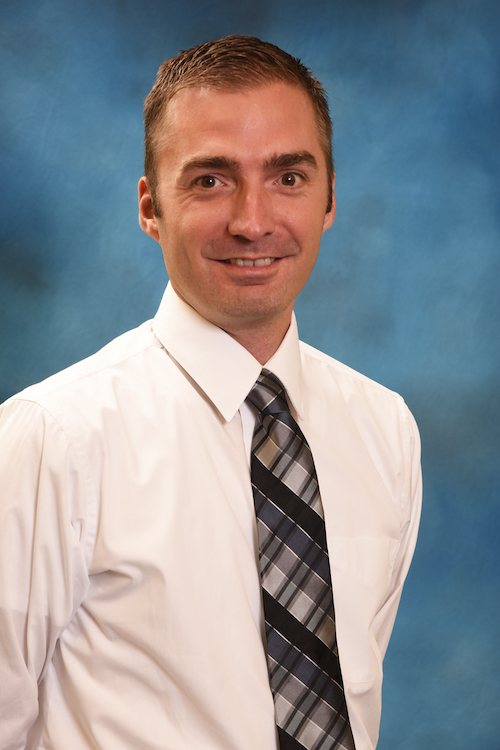
Jonathan Larson Academic Program Manager [email protected] 313-593-5090
College of Education, Health, and Human Services

Master of Education
The faculty of education has been offering the master of education course for a significant number of years. since its inception, the principle behind the design of the m.ed. course was to provide the maltese teaching community with qualified teachers who are researchers. .
This degree is meant to encourage qualified teachers to deepen their knowledge in an area of specialization within the field of education. The Master of Education (M.Ed.) programme of study is administered by the M.Ed. Board of Studies appointed by the Faculty Board of the Faculty of Education. The Board of Studies is responsible for all M.Ed. degrees awarded by the Faculty.
The M.Ed. programmes of study may be either mainly taught or mainly by research. The mainly taught programmes of study are made up of 60 credits taught study-units and a dissertation study-unit to which 30 credits are assigned. The research programmes of study that are mainly by research can be of two types: (i) taught study-units to which 30 credits are assigned and a dissertation study-unit to which 60 credits are assigned, or (ii) taught study-units to which 10 credits are assigned and a dissertation study-unit to which 80 credits are assigned.
Master of Education in Business Education
The Master of Education in Business Education aims to bridge the gap in the lack of research related to business education subjects, especially at secondary school level and in the local Maltese context. Whilst enhancing your studies in business education subjects (such as accounting, economics, business studies and marketing), this course assists you to develop your research skills and contribute to the limited research base.
Master of Education in Computational Thinking
Computational Thinking (CT), which includes coding, programming, and algorithmic thinking, has gained increasing attention in education as a set of skills considered fundamental to numeracy and literacy. The Joint Research Centre of the European Commission regards CT as integral to economic development, competitiveness, growth, jobs, and investment, and encourages EU member states to develop it through the New Skills Agenda. Many countries have introduced basic Computer Science concepts into primary and lower secondary education to develop CT skills. The teaching of CT should preferably start in the primary years, according to the Committee on European Computing Education. The Master of Education by Research in Computational Thinking offers a postgraduate qualification route to enable teachers to undertake an in-depth research project in CT.

Master of Education in Italian Education
This Master of Education (M.Ed.) is a three-year research-based part-time course and it is mainly intended for teachers of Italian and for educators who are interested in carrying out research in Italian education. Students will be given the opportunity to carry out research and further their knowledge of aspects related to Italian language, linguistics, literature and culture, in the light of recent developments in the fields of applied linguistics and language teaching methodology which are relevant to the current situation of Italian in local schools. This is especially topical, because of the major sociolinguistic and sociocultural developments of the past years which have had an impact on the exposure to the Italian language in Malta. The M.Ed. in Italian Education will lead students to recognise and value the importance of educational research by applying it to the field of foreign language teaching and learning. They will be in a position to create and evaluate research-based learning tools and classroom activities while demonstrating the ability to nurture and develop relationships between educators and learners of Italian as a foreign language. This qualification provides students with opportunities to expand their career prospects within the local educational sector as teachers/educators and at administrative levels within education management institutions and/or schools.
Master of Education in Early Childhood Education and Primary Education (Early Childhood Education and Care)
The Master of Education (Early Childhood and Primary Education) in Early Childhood Education and Care offers the opportunity to educators who seek to advance their values, knowledge, and skills in this area of study through research. The early years, particularly the first seven years of life, are fundamental for developing brains and the foundations for future learning and success in the lives of citizens in society. To this, it is critical that educators and leaders in early years education invest in furthering their studies to contribute to the professionalisation of the early years workforce and to the concerted efforts needed for quality provision. The cyclical process of the research study at the postgraduate level will involve critically engaging with literature relevant to the chosen area, identifying a research gap, developing a research question, designing appropriate research methodology, collecting data, and obtaining findings to answer the research question. The area of research may include but is not limited to topics related to quality in early childhood education and care, play and learning, children’s rights, curriculum, quality interactions, early literacy, childcare, and postcolonialism and early childhood.
Master of Education in Early Childhood Education and Primary Education (Giftedness in Primary Education)
This research programme in Early Years and Primary Education offers the opportunity to carry out research related to early years and primary level curricular areas in ensuring children’s holistic development as well as in preparing young learners academically, socially and emotionally for a future society. The programme is being offered in the area of Giftedness in Primary Education where students will gain experience in researching the issue of adopting effective educational practices and strategies to facilitate the learning and development of highly able and gifted learners. Students will be encouraged to engage with the current literature that focuses on giftedness in the early years and in primary education. They will have the opportunity to research notions of emerging abilities, giftedness and talent development and issues related to identification, challenge, enrichment and schoolwide inclusive practices. Other topics of research within this stream are motivation and underachievement in potentially highly able learners, developing positive learner identities, the role of emotion in learning, policy and practice for highly able and gifted learners, sociocultural perspectives on learning and ability, as well as teacher training and continuous professional development.
Master of Education in Early Childhood Education and Primary Education (Moral Education)
The research programme in Early Years and Primary Education offers the opportunity to carry out research related to early years and primary level curricular areas in ensuring children’s holistic development as well as in preparing young learners academically, spiritually, morally, socially and emotionally. Students will have the opportunity to engage with the current literature on narratives, and narrative reasoning and how these may facilitate children moral development and the development of empathy during the early years. Students will be encouraged to research the relationship between narratives, in particular myths and fairy-tales and metaphoric reasoning, and imagination, as well as with the social and cultural milieu in which children are nurtured. Students will acquire the necessary skills to assess the context and children’s needs and to respond by designing adequate programmes aimed at promoting children’s moral development through stories.
Master of Education in Early Childhood and Primary Education (Science Education)
The research programme in Early Years and Primary Education offers the opportunity to carry out research related to early years and primary level curricular areas in ensuring children’s holistic development as well as in preparing young learners academically, socially and emotionally for a future society. The programme is being offered in Primary Science (inquiry in science, young children’s ideas in science, out of class science) and Mathematics Education (Language and Mathematics: code-switching, mathematics register, teacher focus, pupils’ using mathematical language, activities promoting mathematical talk, pupils’ journal writing, deaf children’s, non-Maltese pupils’ experiences of mathematics).
Master of Education in Early Childhood Education and Primary Education (Sustainability in Early and Primary Education)
This research programme in Master of Education in Sustainability in Early and Primary Education offers postgraduate students the opportunity to carry out research related to the teaching of sustainable development to young children in this level of education. Throughout the course, postgraduate students will have the opportunity to critically engage with the literature on sustainable development and children, and gain experience in carrying out research related to the field. To achieve this, students will be encouraged to engage with the current academic literature, therefore, acquiring the necessary skills to access the context and children’s needs, and to respond to these needs by designing programmes that promote sustainable lifestyles. This process involves articulating a research question, designing an appropriate research methodology, collecting data and obtaining findings with respect to the research question set. Ethical considerations related to the research will also be tackled and ethical clearance will be sought. Areas of research that can be selected within this stream include (but not limited to) topics related to the implementation of ESD in an emergent curriculum, nature-based learning, outdoor learning, the use of technological tools for environmental learning, and the exploration of worldviews about a variety of environmental phenomena.
Master of Education in Researching Work and Lifelong Learning
The new Master of Education (M.Ed.) Degree in Work and Lifelong Learning by research is a 90 ECTS course designed for post-graduate training which aims to contribute to research and organisational capacity building in the domain of work-related learning. The primary research areas will include exploration of the individual and social factors that facilitate and hinder wider participation in local lifelong learning. The course also explores causes and consequences of early school leaving and factors that facilitate re-entry to formal education. This course also focuses on facilitation of deep approaches to learning and the development of skills required for lifelong learning.
Master of Education in Technical Design and Technology Education
Educational research in the domain of Technical Design and Technology and Engineering Technology areas will push the knowledge base forward by helping you to understand (to name a few):
1. The variables involved in the uptake or downfall of studies (or courses) related to the technological subjects. 2. How to address common challenges that traditionally plague technological subject areas such as peoples’ negative perceptions or misinformation. 3. How to foster an updated philosophy of technology through better curriculum design, better use of school resources, better links with industrial entities, developing an authentic STEAM approach etc. The following is a brief list from an ample list of research topics: 1. An investigation of the routes for employability of graduates with a degree in Technical Design and Technology. 2. Developing technological curricula for the use of modern tools e.g. 3D printers. 3. The implementation of Design and Technology at primary level.
Need to know more? Contact us.
- Undergraduate
- Postgraduate
- Visiting students
- What you need to know
- Diploma in Education for Cultural Mediation
Study with us
- All courses
- Postgraduate & Research
- Micro-credentials
- Undergraduate prospectus [PDF]
- Postgraduate prospectus [PDF]

Master of Arts in Education
The College of Education, Health, and Human Services of the UM-Dearborn offers a Master of Arts in Education degree. This is a degree, which is designed for educators who desire to fulfill all requirements for a University of Michigan master's degree, including residency, at UM-Dearborn. Courses are offered in the late afternoon, the early evening, the summer, as well as online, in order to accommodate working students. Classes are taught by the faculty of the College of Education, Health, and Human Services and CASL as well as by selected adjunct faculty who are specialists in their field.
The program is designed for educators, enabling them to (a) strengthen their knowledge of established research and best practices in their specific disciplines; (b) to become reflective, caring, and effective leaders within their respective disciplines at the classroom, school, and/or district level; and, (c) continue to develop their knowledge of research and best practices that lead to effective instructional strategies for all student achievement subject specialization. There are four areas of focus within the program: Education , in which students can design their own focus area of study, TESOL, English as a Second Language , and Reading Specialist . The last two can also satisfy the State Of Michigan Specialty Area Endorsements.
Education Specialist (Ed.S.)
The Education Specialist (EdS) degree program is designed to meet a critical need for educational leaders who can transform education at the PK-12, community college and university levels. The Education Specialist (EdS) degree is an advanced professional degree program that assists veteran educators to enhance their knowledge of theory and best practice, to acquire skills in interpreting and using educational scholarship and research, and to understand processes of change and leadership in education settings. The degree program is ideal for educators who seek new skills and new opportunities for leadership and for those seeking the Michigan Central Office Administrator Certificate.
Coursework can be completed on either a full or part time basis. Three courses for a total of 9 credits will be in the core areas; an additional 18 credits will be in one of three concentration areas that will specifically target their professional interests. The final 3 credits will focus on an applied studies or research project. The three concentration areas are: Educational Leadership, Metropolitan Education, and Curriculum and Practice.
Doctorate in Education (Ed.D.)
The Doctorate in Education (Ed.D.) degree is designed for working professionals who aspire to be leaders in education. Students will complete 60 credit hours beyond a Master’s degree in course and field work that lead to the Ed.D. degree. Students may count credits earned toward the completion of a specialist’s degree, either from the University of Michigan – Dearborn or another accredited institution of higher education, toward the completion of their Ed.D. degree. Students who have completed the Ed.S. degree at the University of Michigan – Dearborn and subsequently been admitted to the Ed.D. program will need to complete a minimum of 30 additional credit hours to earn an Ed.D. The determination of what courses need to be taken to complete the program will be the responsibility of the student’s doctoral advisor. Students who have completed an Ed.S. degree at another institution and subsequently been admitted to the Ed.D. program will need to complete a minimum of 36 additional credit hours to earn an Ed.D. The determination of what courses need to be taken to complete the program will be the responsibility of the student’s doctoral advisor.
Coursework can be completed on either a full or part time basis. Eight classes for a total of 24 credits will be in the core areas; an additional 24 credits will be in one of three concentration areas that will specifically target students' professional interests. The final 12 credits will focus on dissertation research or an applied studies project. The three concentration areas are: Educational Leadership, Metropolitan Education, and Curriculum and Practice.
Admission Requirements & Application
Eligibility for regular admission includes:
- Completed application form
- $60.00 application fee
- Official transcript(s) from each college/university attended
- Completion of a bachelor's degree from an accredited institution
- 3.0 (B) undergraduate/graduate grade point average or better
- Three professional letters of recommendation using required form
- Statement of purpose
- Valid state of Michigan teaching certificate required if seeking an additional endorsement
The university’s academic policies for graduate students apply.
Program Requirements
This 30 (minimum) semester hour master's degree is divided into two parts: 1) Core Courses and 2) Professional Studies. Considerable flexibility is available in the professional studies area to satisfy individual interests and needs.
Core Courses
The core sequence provides continuity and integration for all programs. Ideas of policy, change, growth and diversity are developed in the following courses.
Nine credit hours in the Core are required for all.
Professional Studies
The professional studies courses are offered through the College of Education, Health, and Human Services. These courses are to be selected with the advisor's approval in consideration of the student's academic background and/or teaching assignments. The number of credits within this category varies.
Professional studies courses may be selected to enhance the student's current areas of specialty in elementary or secondary education or to obtain an additional area of specialization. These courses may be used to add an endorsement to the certificate. If so, students must meet all the State of Michigan and UM-Dearborn certification requirements for that major or minor. Only courses required for the major or minor, which are approved for graduate credit, may be applied toward the MA program. Professional studies courses may also be used toward meeting the requirements for State teaching endorsements.
Details concerning the requirements and the appropriate coursework can be obtained from the student's assigned advisor or from the College of Education, Health, and Human Services Office of Student Success. A more definitive description of the program is available from the College of Education, Health and Human Service’s web page at: umdearborn.edu/cehhs/cehhs_maed/
Program Options in the Master of Arts in Education
No Additional Endorsement Option English as a Second Language (ESL) Endorsement Option Reading Specialist K-12 Endorsement Option Teaching English to Speakers of Other Languages (TESOL) Option
Minimum requirements for admission in the EdS program include:
- A Master’s degree from an accredited institution of higher education with at least an overall 3.3 on a four point scale or equivalent.
- Official copies of transcripts of all undergraduate and graduate coursework.
- Applicants whose native language is not English must demonstrate English proficiency and are required to provide an official score report of an accepted English Proficiency Test .
- At least three years teaching experience or the equivalent experience working in a professional setting.
- Potential for quality doctoral work
- Potential for leadership impact in the field upon completion of the program
- Other areas may be included such as: collegiality, ability to complete quality work on time, work etc.
- A letter or statement of academic interests, professional goals and the applicant’s personal/unique potential for contribution to a student cohort.
- The application fee.
Meeting the minimum requirements qualifies an applicant for admissions consideration but does not guarantee admission to the program. Admissions will be granted on a competitive basis.
The 30 (minimum) semester hour specialist degree is divided into three parts: 1) Core Courses, 2) Concentration Area Courses, and 3) Research or Applied Studies Project. Considerable flexibility is available in the concentration areas to satisfy individual interests and needs. Courses leading to the Michigan Department of Education Central Office Administrator Certificate are available to students who choose the Educational Leadership concentration.
The core courses are designed to provide students with a global perspective of education in contemporary schools and to prepare them for higher-level courses in the specialization area.
Note: An Introduction to Research course must have been completed and credited on graduate transcript prior to enrolling in EDK 823 or EDK 825.
All three core courses or their equivalent must be completed. Any substitution of course(s) for a core course(s) must be approved in writing by the program advisor before the action research course.
Concentration Area Courses (18 hrs)
Six specialist level courses must be selected in the area of concentration with the guidance of the student’s respective EdS program advisor. The professional studies courses are offered through the College of Education, Health, and Human Services and other units of the University. Students will work with their faculty advisor to determine which concentration area courses are appropriate to the student's needs and professional goals.
Action Research Studies (3 hrs)
Students will complete an action research project with approval of their advisor following successful completion of the core and concentration area courses.
Central Office Administration Certificate Program
The Central Office Administration Certificate Program is designed to prepare students for roles in PK-12 school district central office administration/leadership.The program is approved by the Michigan Department of Education and meets MDE Standards for the Preparation of Central Office Administrators. Upon successful completion of the program, students will be eligible for recommendation to the Michigan Department of Education for the Central Office Administration Certificate.
The Central Office Administration Certificate Program can be obtained in one of the three following ways:
- In conjunction with the Education Specialist (Ed.S.) degree program
- In conjunction with the Education Doctoral (Ed.D.) degree program
The program curriculum emphasizes the knowledge and skill base required to meet the opportunities and challenges of central office leadership in PK-12 school systems. The courses are designed to develop educational leadership competency and skills in organizational development, labor relations, human resource development, strategic planning, applications of technology, policy development, school community relations, data analysis, legal and regulatory issues, and evaluation of programs. An internship in central office administration is required in the final year of the program. Courses are offered in the evening and online to accommodate the working professional.
Admission Requirements
Eligibility for admission to the Central Office Administration Certificate program requires a bachelor’s degree from an accredited college or university with an undergraduate GPA of 3.0 or better on a 4.0 scale, a valid elementary or secondary teaching certificate, a minimum of three years classroom teaching experience, completion of a master’s degree in educational administration/leadership with a GPA of 3.3 or better on a 4.0 scale, and a valid K-12 school administration certificate.
Application Process
Formal application to the Central Office Administration Certificate Program must be submitted to the College of Education, Health, and Human Services Educational Leadership Program. Applications are available on-line at the College of Education, Health, and Human Services web site or can be obtained at the College of Education, Health, and Human Services Office of Student Success. Applications should be completed and submitted to the College of Education, Health, and Human Services Office of Student Success along with the following supporting materials:
- Official copy of the applicant’s baccalaureate degree transcript;
- Official copy of the applicant’s master’s degree transcript;
- Official transcripts from all other colleges or universities attended;
- A copy of the applicant’s current Michigan Teaching Certificate;
- A copy of the applicant’s current Michigan School Administrator Certificate;
- Three letters of recommendation attesting to the applicant’s quality level of graduate work, potential for leadership impact in the field upon completion of the program, and other area related to ability to complete the program;
- A one page Statement of Purpose including academic interests, professional goals, and personal/unique potential for contribution to the field of central office administration;
- A $60.00 non-refundable application fee.
The Statement of Purpose should be a concise, well written essay addressing applicant’s educational background, academic interests, career goals, and service to PK-12 schools.
A minimum cumulative GPA of B (3.0 on a 4.0 scale) must be maintained to continue enrollment in the program. Candidates must hold a valid and current elementary or secondary teaching certificate and a valid and current school administrator certificate. The program requires successful completion of the following courses:
The Internship in Central Office Administration requires sustained practice in multiple central office positions under the mentorship of a practicing central office administrator. This program remains under on-going review to insure quality and compliance with University and Michigan Department of Education standards and requirements.
The objective of the admission process for the Ed.D. is to build a learning community that engages in active scholarship. The admissions process works to balance three primary goals:
- that students admitted to the program are of the highest quality,
- that there is a good match between students and faculty in terms of interest, and
- that we promote a learning community within cohorts that is supportive, challenging and sustained until program completion.
Basic Admission Requirements
College of Education, Health, and Human Services Admission Prerequisites
Applications are due annually on March 15 in order to be considered for admission in the Ed.D. Program. Applicants may be interviewed by the Ed.D. Committee as part of the selection process.
Individuals who wish to apply for this program may initiate the application process online .
Review process
The Ed.D. Faculty Advisory Committee will review complete applications and invite in selected students for personal interviews. During the interview, the applicant will be expected to demonstrate evidence of personal commitment to earn a doctoral degree, evidence of personal and professional goals that are aligned with the goals of the Ed.D. program, and evidence of professional behavior. Meeting the minimum requirements qualifies an applicant for admissions consideration but does not guarantee admission to the program; the Ed.D. Faculty Advisory Committee will determine admission on a competitive basis.
Satisfactory Progress Towards Degree
Each doctoral student is expected to maintain satisfactory progress towards the degree by maintaining a “B” average in coursework and passage of all required examinations within two attempts. Students who fall below a “B” grade point average in any one term will be placed on academic probation and notified of this in writing. Students who do not make satisfactory progress may be removed from the program in writing. CEHHS and the EdD Faculty Advisory Committee will determine criteria for disqualification from the program.
Readmission
Students not registered for classes within one calendar year must submit a readmission form to the doctoral program coordinator. Approval for readmission must be obtained in order to register for classes.
Residency Requirements
While there will be no formal residency requirement for part time students, it is expected that they will participate in doctoral program activities on campus or through online discussions. This involvement will foster intellectual development and provide a supportive environment for all program participants.
Normative Time from Matriculation to Degree
The Ed.D. program is designed for completion of the degree requirements at a minimum of four calendar years. However, circumstances may require students to take fewer courses each term. As a result, flexibility is built into the program. Total time to complete coursework and advancement to candidacy should not normally exceed four years, but students can request additional time. A request for extension needs to be submitted to the Ed.D. Faculty Advisory Committee.
Total registered time in the program is not expected to exceed six years and may not exceed ten years without a formal request by the student submitted to the Ed.D. Advisory Committee.
Transfer of Credit
Courses may receive transfer credit if:
- Graduate credits were completed within five years of application to the Ed.D. program at another accredited institution.
- Graduate credits were completed at another University of Michigan School or College (including Flint and Ann Arbor).
- Graduate Extension courses were completed at any of these campuses; the University of Michigan, Wayne State University, Michigan State University, Western Michigan University, Central Michigan University, Eastern Michigan University, Northern Michigan University, and Oakland University.
- Courses were taken at an undergraduate institution, only if students completed the course during their junior or senior year and they were approved for graduate credit by the graduate school of the institution where and when the student took the course; and the courses were not used in whole or in part, in any way, to meet requirements for a degree, and the student’s doctoral program adviser approves the transfer of the course.
Up to six credit hours from another (non University of Michigan) accredited university will be accepted as transfer credits; however, the Ed.D. advisor must approve the acceptance of transfer credits. Students may transfer up to one-half (1/2) the minimum number of credit hours required in the coursework for the core and concentration classes in the Ed.D. degree from the Ann Arbor and Flint University of Michigan campuses.
The 60 (minimum) credit hour doctoral degree is divided into three parts: 1) Core Courses (24 credit hours), 2) Concentration Area Courses (24 credit hours), and 3) Dissertation Research or Applied Studies Project (12 credit hours). Considerable flexibility is available in the concentration areas to satisfy individual interests and needs.
Core Courses (24 credit hours)
All eight core courses or their equivalent must be completed. Any substitution of course(s) for a core course(s) must be approved in writing by the doctoral program advisor before the qualifying exam.
Concentration Area Courses (24 credit hours)
Eight graduate/doctorate level courses must be selected in the area of concentration with the written approval of the student’s Ed.D. program advisor. The concentration area courses are offered through the College of Education, Health, and Human Services and other units of the University. Students will work with their advisor to determine which concentration area courses are appropriate to the students’ needs and professional goals.
Scaffolded Performance Assessment (12 credit hours)
The Ed.D. performance assessment is a scaffolded procedure designed to help students develop their scholarly voice, research skills, and become members in a professional academic learning community. At each stage students are given opportunities to present scholarship that is related to their areas of interest within the field of education. Following the completion of all coursework students will present and defend their work in a portfolio. For detailed information please review the Ed.D. Handbook .
A student will become a candidate for the Ed.D. degree after completing the required coursework with a minimum GPA of B and after successfully defending their passing the portfolio defense qualifying examination and proposal defense. At this point, the student will be allowed to pursue the dissertation or applied studies work.
Dissertation/Applied Studies Project
Following successful defense of the portfolio and completion of the qualifying exam and dissertation/applied studies proposal defense, the student will complete a focus will be on the preparation for the dissertation research or applied studies project. This culminating work may focus on a wide range of topics and/or research methods. Whether the candidate decides to do a dissertation or applied studies project, the work will focus on a significant professional problem or issue and have the potential to contribute in a general way or in the context of a particular educational setting to the improvement of PK-12, community college, or university level education.
The student must submit a written copy of the dissertation or applied studies project to the dissertation/applied studies committee for approval before the oral defense will be scheduled. All members of the dissertation or applied studies committee are responsible for reading the dissertation or applied studies documents and submitting their written evaluations to the committee chair at least one week prior to the defense.
Oral Defense of Dissertation/Applied Studies Project
The final oral examination is the candidate’s defense of the dissertation or applied studies project. The dissertation/applied studies committee members conduct the oral examination. The final oral examination will be open to other faculty, students and interested public. The dissertation/applied studies committee members must be present at the oral defense. Unanimous agreement of the committee is required for approval of the dissertation/applied study and recommendation that the Ed.D. degree be awarded. If the committee requires substantive changes to the written project, the final vote of the committee will be postponed until after the changes are completed.
Submission of the Written Dissertation/Project
The dissertation/applied studies project must be submitted to the program director by a specified deadline in the semester in which the degree is conferred.
The dissertation/applied studies project must conform to UM-Dearborn approved dissertation/applied studies manuscript guidelines.
EdD and EdS Degree Alignment
The Ed.D. requires a minimum of 60 credit hours beyond the Master’s Degree. Students may count credits earned toward the completion of a specialist’s degree, either from the University of Michigan – Dearborn or another accredited institution of higher education, toward the completion of their Ed.D. degree. Students who have completed the Ed.S. degree at the University of Michigan – Dearborn can transfer up to 30 credit hours toward completion of the Ed.D. from the Ed.S. at the University of Michigan – Dearborn. The determination of which hours can be counted will be the responsibility of the student’s doctoral advisor. Students who have completed an Ed.S. degree at another institution can petition to transfer up to 24 credit hours toward completion of the Ed.D. at the University of Michigan – Dearborn. The determination of which hours can be counted will be the responsibility of the student’s doctoral advisor, the petition must also be approved by the Ed.D. Advisory Committee.
Students must plan their program with their assigned advisor or with the Director of the Ed.D. program. Contact the College of Education, Health, and Human Services at (313) 593-5090 for an advising appointment.
All graduate policies have been formulated by the UM-Dearborn College of Education, Health, and Human Services Ed.D. Faculty Advisory Committee with the goal toward academic quality. This goal requires that policies be equitably and uniformly applied. However, there may be an infrequent extenuating circumstance that warrants individual consideration. In such a case, a petition to waive or modify a policy may be filed by the doctoral student. Please contact the Office of Student Success for information and forms regarding the petition process.
A diploma application must be submitted at the time of registration for the final semester.
Learning Goals
- Knowledge of content and best practices in their specific disciplines (ESL,Reading,Mathematics, Mathematics Leadership or liberal arts content).
- Strategies to enable them to be effective leaders within their respective disciplines at the classroom, school, and/or district level.
- Skills to enable them to continue to develop their knowledge of research and best practices that lead to effective instructional strategies for all student achievement.
- Seeking Patient Care?
Home / News / Medical Education / Medical Education
#MedCanes Chronicles: How Do We Heal the Healers?
“#MedCanes Chronicles” offers first-person perspectives into the lives of medical students on their journey to becoming health care leaders. The series delves into the personal narratives of these aspiring doctors and scientists, shedding light on their struggles, triumphs and the resilience that propels them forward.
Amanda Kaine, Master’s Degree in Biomedical Sciences, Class of 2024, and #MedCanes Ambassador

In a world where self-doubt echoes through the minds of many, society often advises drowning out these thoughts with more work, an approach that, ironically, leads to greater exhaustion. This phenomenon, often termed “hustle culture,” champions an intense work ethic and minimal rest. Our society capitalizes on business and suppressing thought.
Then, yet again, internalized doubt surfaces and is consciously recognized within the memory system, only to be forced into a reservoir of ignorance. Why does this cycle persist? What are its effects? The analogy of a boat becoming too full and sinking aptly illustrates how we bury our thoughts. Rather than facing issues head-on, we resort to the sympathetic response—ignoring or running away. This fight-or-flight reaction is a recurring phenomenon in various aspects our lives.
We are healers. Those clad in PPE and donning scrubs. Those who know the halls of hospitals and research facilities better than those of our own homes. Who give of ourselves again, again and again. But what happens when we are broken?
During my gap year, I utilized my EMT license and worked for emergency medical services in conjunction with a fire department. Witnessing the burnout among my colleagues, who endured 24-hour shifts every third day for decades, raised important questions. Could this burnout be prevented?
In medical training, we now have an 80-hour-work-week limit for residents to prioritize wellness and prevent “living at the hospital.” However, we all have the same 168 hours in a week. To prevent burnout, we must use our off time to delve into our passions and rejoice with those we love. If we don’t, we can not only become physically ill, but mentally suffer, too.
Here are some things I like to do outside of medicine that benefits my overall health and positively impacts my mental health, too!
- Dance: I make it a point to dance weekly, coupled with stretching to maintain flexibility.
- Lifting weights: While it may sound cliché, exercise truly alleviates stress. Tune into motivational songs, lift weights and feel the benefits.
- Skin care/self-care hobbies: Prioritizing overall wellness, I indulge in monthly facials or hair treatments as a form of revitalization and relaxation.
Wellness is a unique journey for everyone. There’s no one-size-fits-all solution. Dealing with stress is a personal choice, but it’s crucial to maintain healthy habits that address both physical and mental health. A gentle reminder: You are important, and you deserve the same time and care you give to others!
Share Your Story
Miller School medical students, share your journey or a classmate’s story.
Tags: #MedCanes Ambassadors , MedCanes Chronicles , medical students , Miller School of Medicine
#MedCanes Chronicles: My Journey Navigating Language Challenges in Miami’s Diverse Health Care Landscape
Medical student Brett Frank quickly learned the importance of effective patient communication during his time in the emergency room.
#MedCanes Chronicles: Ugly Feelings from a Jellyfish
Miller School medical student Stephanie Cedeño writes about her difficulties communicating with family as her career progresses.
- Clinical Care
- Community Outreach
- Grants and Awards
- Medical Education
- Research and Innovation
- Infectious Diseases
- Neurosciences
- Ophthalmology
- Orthopaedics
- Otolaryngology
- Philanthropy
- Cardiovascular Medicine
- Digestive Health and Liver Diseases
Share this Story
This article was printed from The Miller School of Medicine Medical News at the following URL: https://news.med.miami.edu/how-do-we-heal-the-healers/
Copyright © 2024 University of Miami Health System

These are the best graduate school programs in Wisconsin, according to U.S. News & World
Top graduate schools in Wisconsin landed on the latest U.S. News & World Report list ranking more than 2,000 programs across the country. U.S. News & World Report published its 2024-'25 report in April, ranking graduate programs in business, education, law and nursing, among other fields.
University of Wisconsin-Madison's the School of Education tied for first overall with Teacher's College, Columbia University, according the report. That's up from third overall and second among public universities last year.
Several of Marquette University's graduate programs moved up on the list, including the master's program in the College of Nursing, which moved up from 66 to 58.
Schools were evaluated based on expert opinion and statistical data measuring the quality of the school's faculty, research and post-graduate outcomes. You can find the full list on the U.S. News website for graduate rankings on their website www.usnews.com/best-graduate-schools .
Top business graduate programs in Wisconsin:
- University of Wisconsin-Madison: #43
Top law graduate programs in Wisconsin:
- University of Wisconsin-Madison: #36 (tie)
- Marquette University: #68 (tie)
Top nursing graduate programs in Wisconsin:
- Marquette University: #58 (tie)
- University of Wisconsin-Milwaukee: #82 (tie)
- University of Wisconsin-Eau Claire: #107 (tie)
- University of Wisconsin- Oshkosh: #118
- Alverno College: #119 (tie)
- Milwaukee School of Engineering: #153-169
Top medical graduate programs in Wisconsin:
- University of Wisconsin-Madison: #35 (tie)
Top education graduate programs in Wisconsin:
- University of Wisconsin-Madison: #1 (tie)
- University of Wisconsin-Milwaukee: #169 (tie)
- Marquette University: #192
Top Engineering graduate programs in Wisconsin:
- University of Wisconsin-Madison: #27 (tie)
- Marquette University: #142 (tie)
- University of Wisconsin-Milwaukee: #177 (tie)
RELATED: Here's how Wisconsin universities ranked in the 2024 Best Colleges list
- Skip to Content
- Skip to Main Navigation
- Skip to Search

Indiana University Bloomington Indiana University Bloomington IU Bloomington

- Office Directory
- Add or Edit Profile
- Financial Management Practices
- Development and Alumni Relations
- Benefits and Services
- Employee Appreciation Programs
- The Five Functions of DEI
- Communication
- Recruitment
- DEI Dashboard
- 2020 Report
- 2019 Report
- Student Ambassadors
- Education Library
- Education Technology Services
- Graduate Studies
- Courses and Workshops
- Video Production Guidelines
- Promotional Posting Guidelines
- Research and Development
- Records and Reporting
- Dean's Advisory Board
- Service, Leadership, and Outreach
- Student Success
- Diversity Plan
- 100th Anniversary Book
- Diversity, Equity, and Inclusion
- Targeted Engagements
- Global Gateway for Teachers
- Overseas Short-Term Study Experiences
- External Grant Opportunities
- Our Global Reach
- Faculty and Student Int'l Engagement
- IU Global Gateways
- Indiana Global Education Outreach
- Int'l Partnerships
- Visiting Int'l Scholars
- Int'l Student Ambassadors
- Academic Programs
- International Journals
- News & Events
- Int'l Student Resources
- CAEP Annual Reporting Measures
- CAEP Accreditation Visit Call for Third-Party Comments
- SoE Data Dashboards (Faculty)
- Licensure Requirements
- Employment Outcomes
- Employer Evaluations
- Student Teaching Survey Reports
- Attrition & Completion Rates
- Graduate Survey Results
- Indiana Teachers of the Year
- Emergency Action Plan
- SoE Emergency Information
- School Violence
- Report Facility Issue
- Direct Admit Scholars
- TEP Application Guidelines
- Accessible Virtual Tour
- Field Trips
- Non-School of Education Scholarships
- Graduate Student Funding
- Student Emergency Fund
- Campus Financial Aid Resources
- INSPIRE Living-Learning Center
- All Programs
- License Additions
- Master's Programs
- Doctoral Programs FAQ
- Specialist Programs
- Certificate Programs
- Doctoral Minors
- Licensure Programs
- Transition to Teaching
- New Zealand
- Northern Ireland
- Navajo Nation Program
- Urban Program
- IU Bloomington Students
- Guest Campus Students
- Partner Campus Students
- Student Spotlights
- Teacher Spotlights
- Cost & Financial Aid
- Online Learning
- Tuition and Fees
- Registration
- Block Enrollment Course Information
- Student Teaching Registration Information
- Program Sheets
- Forms & Publications
- Credit Overload Request
- Four Year Plan
- Academic Calendar
- Undergraduate Bulletin
- Background Check
- Early Field Experiences
- Student Teaching Forms
- Preparation
- Frequently Asked Questions
- Student Organizations
- Counseling and Student Services
- Dean's List
- Report Your Concerns
- Scholarships
- Career Coaching
- Student Teaching Fair
- Health and Human Services Career Day
- Explore Possibilities
- Get Experience
- Stay Connected
- Professional Distinction
- Educator Wellbeing Distinction
- Workshops and Training
- Recruiting Policies
- Classroom Presentations
- Graduation Deadlines
- Leave Policy
- Online Students
- Graduation Application
- Guidelines for Multi-Article Dissertations
- G901 Permission Request
- Qualifying Examinations
- 2022 Scholars
- 2021 Scholars
- 2020 Scholars
- 2023 Scholars
- Program-Specific Information
- International Student Ambassadors
- Student Affiliates in School Psychology
- Dissertation & Thesis Announcements
- Approved Core Inquiry Courses
- Holmes Scholars Program
- Initial Licensure
- License Renewal
- Licensing Outside Indiana
- Knowledge Base
- Graduate Bulletin
- Teaching with Technology Lab
- Support Services
- Volunteering Opportunities
- Faculty Directory
- Counseling and Educational Psychology
- Curriculum and Instruction
- Chair's Welcome
- IST Conference
- Faculty Bookshelf
- Faculty Meetings
- Policies and Procedures
- Instructional Consulting
- In Memoriam
- Office of Research and Development
- 2023 Highlights
- Research Centers
- Funded Research
- Research Findings
- Translation to Practice
- Equity in Action
- Overview and Project Timeline
- Analysis in Progress
- Presentations
- Accomplishments
- Teacher Study Group
- "Creative Paths to Peace" Grant
- Proffitt Internal Grant Competition
- Proffitt Summer Faculty Fellowship Program
- Tilaar Faculty Support Fund
- Cost-Share and Matching Funds on External Grant Proposals
- Current Visiting Scholars
- Become a Visiting Scholar
- Visiting Scholar Policies
- COVID-19 Entry Updates
- Flexible Workspace
- Faculty & Staff Giving Campaign
- Donor Spotlights
- Get Involved
- Submit a Nomination
- Alumni Magazine
- Alumni Board of Directors
- Counseling and Wellness Clinic
- Learning and Developmental Evaluation Clinic
- Current Cohort
- Past Cohorts
- Nominate a Teacher
- How to Apply
- Armstrong Teacher Panel Archive
- Current Jacobs Educators
- Past Winners
- Advisory Board
- Teachers' Examples
- Research-to-Practice Briefs
- Speaker Series
- Baxter Online STEM Student Challenges
- Educating for Environmental Change (EfEC)
- Dual Language Immersion (DLI)
- Global Learning for Pre-Service Teachers Workshops
- Global Literacy Invitation Project
- Global STEAM
- In-Service Teachers Workshops
- Principals’ Academy on Internationalizing K-12 Schools
- School of Education Curriculum Internationalization
- Medical Research Education Project
- Project LIFT
- Saturday Art School
- Past Lesson Plans
- Partners in Education (PIE)
- Maker Mobile
- Past Mentors
- Apply to Be a Mentor
- HOPE Training Modules
- HOPE for Cadets
- AAC in Action
- Celebration of Excellence
- C&I Graduate Research Symposium
- Invited Sessions
- Visiting Bloomington
- Science Education Research Symposium
- Convocation
- Diggs Symposium
- Virtual Events
- Advisory Committee
- Education Law Resources
School of Education
High rankings reflect strong graduate programs at the iu school of education.
By Catherine Winkler
Tuesday, April 09, 2024
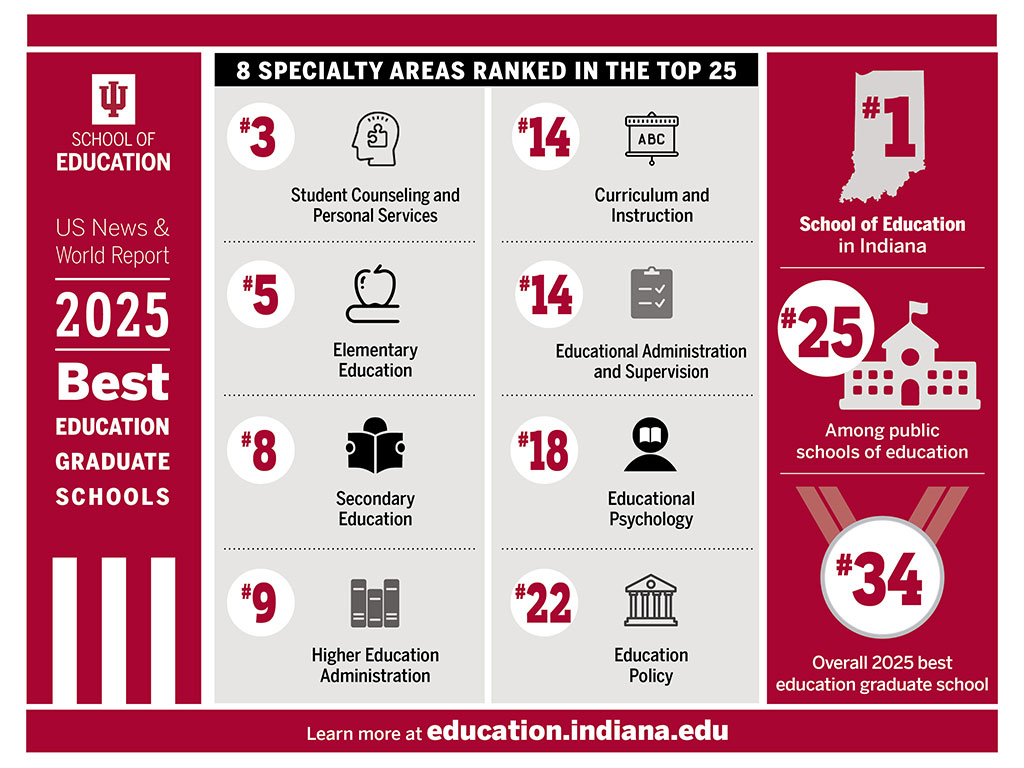
The IU School of Education has been recognized again as one of the best graduate schools in education across the country by U.S. News and World Report’s 2024-2025 “Best Graduate Schools .”
Overall, the IU School of Education is ranked #34, two spots higher than last year, with eight graduate specialty programs ranked in the top 20. All specialty programs rose in rankings compared to last year.
“Our graduate programs contribute groundbreaking research and work that advances education around the world, and these rankings are evidence of both that hard work and our dedication to these programs,” said IU School of Education Dean Anastasia Morrone .
“Graduate programs across the School of Education are held in very high regard, which is a reflection of the stellar research, education, and outreach done by our faculty and alumni around the globe,” said Thomas Nelson Laird , Associate Dean for Graduate Studies.
- Student Counseling and Personal Service - #3
- Elementary Education - #5
- Higher Education Administration #9
- Secondary Education - #8
- Curriculum and Instruction - #14
- Educational Psychology - #18
- Educational Administration and Supervision - #14
- Education Policy - #18
Graduate programs at the School of Education prepare students for careers that make a difference through education fields or other professions. From working in schools and public institutions to jobs in government, corporate environments and technology companies, our graduates affect change and make the world a better place through their work. Many of these programs are also offered online, making them a flexible option for professionals looking to further their education.
Description of the eight EQF levels
Each of the 8 levels of the EQF is defined by a set of descriptors indicating the learning outcomes relevant to qualifications at that level in any qualifications system.
The learning outcomes are defined in terms of:
Knowledge: in the context of EQF, knowledge is described as theoretical and/or factual.
Skills: In the context of EQF, skills are described as cognitive (involving the use of logical, intuitive and creative thinking) and practical (involving manual dexterity and the use of methods, materials, tools and instruments).
Responsibility and autonomy: In the context of the EQF responsibility and autonomy is described as the ability of the learner to apply knowledge and skills autonomously and with responsibility.
Level 1 - learning outcomes
Level 2 - learning outcomes, level 3 - learning outcome, level 4 - learning outcomes, level 5 - learning outcomes, level 6 - learning outcomes, level 7 - learning outcomes, level 8 - learning outcomes, compatibility with the framework for qualifications of the european higher education area.
The Framework for Qualifications of the European Higher Education Area provides descriptors for three cycles agreed by the ministers responsible for higher education at their meeting in Bergen in May 2005 in the framework of the Bologna process. Each cycle descriptor offers a generic statement of typical expectations of achievements and abilities associated with qualifications that represent the end of that cycle.
1. The descriptor for the short cycle developed by the Joint Quality Initiative as part of the Bologna process, (within or linked to the first cycle), corresponds to the learning outcomes for EQF level 5.
2. The descriptor for the first cycle corresponds to the learning outcomes for EQF level 6.
3. The descriptor for the second cycle corresponds to the learning outcomes for EQF level 7.
4. The descriptor for the third cycle corresponds to the learning outcomes for EQF level 8.
Share this page

- Accessibility Options:
- Skip to Content
- Skip to Search
- Skip to footer
- Office of Disability Services
- Request Assistance
- 305-284-2374
- High Contrast
- School of Architecture
- College of Arts and Sciences
- Miami Herbert Business School
- School of Communication
School of Education and Human Development
- College of Engineering
- School of Law
- Rosenstiel School of Marine, Atmospheric, and Earth Science
- Miller School of Medicine
- Frost School of Music
- School of Nursing and Health Studies
- The Graduate School
- Division of Continuing and International Education
- People Search
- Class Search
- IT Help and Support
- Privacy Statement
- Student Life
- University of Miami
- Division of University Communications
- Office of Media Relations
- Miller School of Medicine Communications
- Hurricane Sports
- UM Media Experts
- Emergency Preparedness
- School Education and Human Development
- Educational and Psychological Studies
- Kinesiology and Sports Sciences
- Teaching and Learning
- Publications
- Department of Educational and Psychological Studies
- Department of Kinesiology and Sport Sciences
- Department of Teaching and Learning
- Latest Headlines
- Subscribe to News@TheU Newsletter
- UM NEWS HOME
Students contribute to sustainability efforts on campus
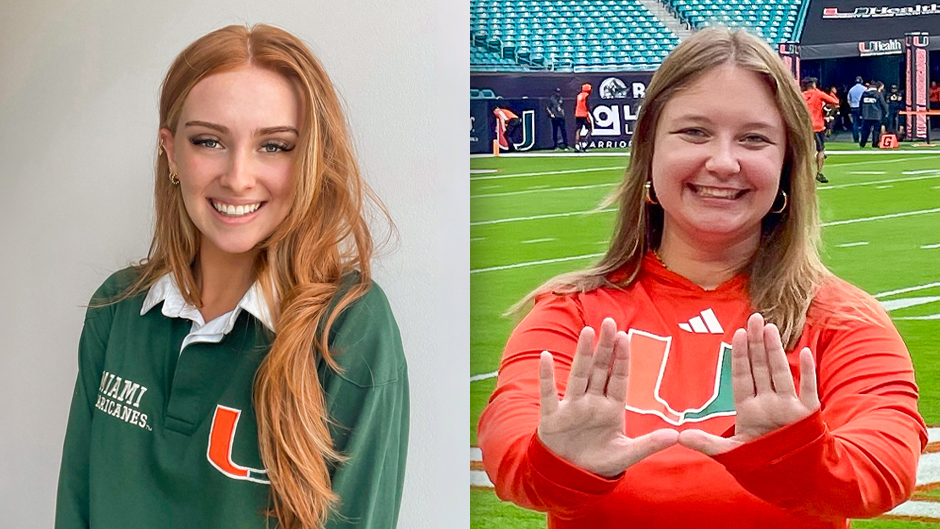
Graduate student Elizabeth Deese, left, and junior Erin Burnett embrace sustainability efforts on campus.
By Barbara Gutierrez [email protected] 04-08-2024
Erin Burnett, a junior, has always loved sports. In high school in Mount Olive, New Jersey, she played field hockey, golf, and soccer. Her dream is to become an athletics director with a collegiate or professional sports team.
Toward that end, she is majoring is sport administration at the University of Miami School of Education and Human Development . She is also the student football equipment manager in the Department of Athletics.
Last semester, she heard Teddy Lhoutellier, the University’s sustainability director, talk about the efforts of Green U , the office of sustainability, and she was drawn in by the importance of these efforts for the good of the planet.
Burnett is now the UM Green Athletics Liaison, and her mission is to bring the message of sustainability to athletes and fans.
“It is really about being mindful to the environment,” she said. Her goals are to make sure athletes and fans are aware that even small efforts can make a big difference.
Lhoutellier’s message resonated with her because he emphasized how efforts to create a green environment at the University have always been student driven.
“We have a history that everything regarding sustainability at the U has been thanks to the students,” he said. “It is not very common to see student initiatives turn into powerful organizations.”
From 2007, when a student-led initiative resulted in the University’s commitment to be carbon neutral by 2050 to the establishment of a myriad of programs and groups to sustain the environment, students have always led the effort, said Lhoutellier. He cites the ECO Agency, a group within Student Government that boosts sustainability projects on campus, as one example.
As one of several liaisons throughout the University, Burnett in her role shares information a bout environmental sustainability initiatives and opportunities while identifying improvements in the units. Her role is particularly important when it concerns large athletic events, which tend to generate a great deal of waste, she said.
One of those events took place on March 6, at the Watsco Center during Miami Hurricanes’ "green” game against Boston College. Videos on sustainability were shown during half-time and participants who signed a plastic free pledge took part in giveaways.
Burnett is currently carrying out audits of the baseball stadium, Alex Rodriguez Park at Mark Light Field, and football cafeteria to determine the kinds of products being used and whether the waste could be minimized and disposed properly.
“ Some examples of what I look to find are if they are using more paper or plastic, if there are enough recycling bins, and if they have the correct bags,” she said. “I like to ask about any recent changes they’ve made or about to make.”
For Elizabeth Deese, her love of nature, and particularly the ocean, led her to the Office of Sustainability. As a native Bostonian, she would often sail the New England coast with her family. Deese is a graduate student in the M.A. in Environment, Culture, and Media Program through the Abess Center for Ecosystem Science and Policy .
“Growing up sailing instilled in me a sense of adventure and a reverence and deep connection to the ocean and the environment,” she said. “It taught me to appreciate not only the recreational and aesthetic value of nature, but also its intrinsic value.”
Today, Deese works part-time as the communications coordinator for the Office of Sustainability and has married her love of storytelling with her interest in advocating for green practices.
In addition to maintaining the office’s social media platforms, she creates videos highlighting “green” programs, people, and initiatives around campus.
One such video was on “Sustainable Dining at UM.” It focused on how the dining halls are emphasizing plant-based offerings as well as buying produce from local suppliers and providing students with Ozzi reusable to-go containers.
Deese finds that the messages are well received by the students and staff members.
“In 2024, because of climate change and the array of environmental problems that we are facing, shifting to more sustainable practices helps to mitigate the negative effects,” she said.
“Reducing our individual carbon footprints is profoundly important, but we also have power beyond that. We can vote, educate ourselves, and get involved with local environmental organizations. Not only living as ‘green’ as we possibly can, but also using our power and our voice, will help bring us closer to that more sustainable and equitable future,” Deese added.
School of Education & Human Development
All degrees, get started, support sehd, 'canes calendar.

- 5202 University Drive Merrick Bldg. Rm. 312 Coral Gables , FL 33124
- 305- 284-3711 305- 284-3711
- UM News and Events
- Alumni & Friends
- 'Cane Watch
Tools and Resources
- Academic Calendar
- Department Search
- Parking & Transportation
- social-facebook
- social-twitter
- social-youtube
- social-instagram
Copyright: 2024 University of Miami. All Rights Reserved. Emergency Information Privacy Statement & Legal Notices Title IX & Gender Equity Website Feedback
Individuals with disabilities who experience any technology-based barriers accessing the University’s websites or services can visit the Office of Workplace Equity and Inclusion .
Several UMass Amherst Graduate Programs Earn National Recognition in 2024 US News & World Report Rankings

Graduate programs in several disciplines at the University of Massachusetts Amherst rank among the best in the country as reported in the 2024 edition of U.S. News & World Report’s Best Graduate Schools .
Each year, U.S. News ranks more than 800 institutions with a variety of graduate programs in six prominent fields: business, nursing, education, engineering, law and medicine. This year, the engineering, clinical psychology and medical program rankings will be published at a later date.
In addition, rankings are published periodically for a selection of other disciplines; this year, new updated rankings were published for graduate programs in public affairs, computer science and health fields, including speech-language pathology, public health and clinical psychology.
The UMass Amherst rankings for 2024 include:
- The Manning College of Information and Computer Sciences ranks the same as last year at No. 24 and also ranks in most of the sub-specialties: artificial intelligence at No. 16, programming language at No. 23 and systems at No. 23.
- The School of Public Health and Health Sciences climbed 14 spots from last year to No. 29, and it also ranks No. 44 in speech-language pathology.
- The School of Public Policy ranks No. 52 in public affairs programs.
- The College of Education ranks No. 79, up from No. 83 last year.
- The Isenberg School of Management’s full-time MBA program moved up 14 spots to No. 72 in the Best Business Schools rankings and the part-time MBA program is ranked No. 45, up two spots from last year. This year’s methodology placed more emphasis on earnings, facilitated by a new ranking factor that assessed how each school’s post-graduate salaries across different professions compared with other schools’ post-graduate salaries in those professions.
Rankings of other graduate programs were not updated this year, but they were republished in the new guide. They include:
- In the natural sciences —chemistry at No. 51; geology/earth sciences: No. 47; mathematics: No. 55; and physics: No. 55.
- In the natural and life sciences —biological sciences at No. 74, biostatistics at No. 31, psychology at No. 51 and statistics at No. 51.
- Fine arts at No. 89.
- In the social sciences and humanities —English at No. 41, history at No. 48, political science at No. 56, economics at No. 79, and sociology at No. 29, with the sex and gender studies program ranked No. 8.
US News & World Report Releases 2024 Rankings Of America’s Best Grad Schools
Texas A&M University is one of the nation’s leaders in graduate education, according to the latest rankings from U.S. News & World Report.
The university has 33 programs in the Top 50 spanning across agriculture, business, computer science, education, health, law, political science, public affairs, psychology, science, and veterinary medicine. U.S. News announced this week that the release of rankings for engineering, medical and clinical psychology will be delayed.
In its Best Graduate Schools ranking, the publication placed 10 of Texas A&M’s graduate programs in the Top 20; among those, six are Top 10:
College of Arts and Sciences
- Industrial and organizational psychology, No. 7 (No. 6 public)
- Inorganic chemistry, No. 5 (No. 2 public, No. 1 in Texas)
- Nuclear physics, No. 7 (No. 6 public, No. 1 in Texas)
School of Law, overall No. 26
- Dispute resolution, No. 5 (No. 3 public, No. 1 in Texas)
- Intellectual property, No. 6 (No. 2 public, No. 1 in Texas)
School of Veterinary Medicine and Biomedical Sciences, overall No. 10 (No. 9 public, No. 1 in Texas)
According to U.S. News , the rankings are based on expert opinion on program excellence and statistical indicators that measure the quality of a school’s faculty, research and students. Texas A&M currently enrolls 16,762 graduate and professional students (fall 2023), in more than 170 master’s, 94 doctoral and five professional degree programs.
“I’m so proud of our graduate students, the world-class faculty who mentor them and the outstanding programs that set them on a path to success in their chosen fields,” said Gen. (Ret.) Mark A. Welsh III, president of Texas A&M University. “Post-graduate education at Texas A&M contributes immeasurably to our research enterprise and our teaching and service missions. Congratulations to the students, faculty and staff whose work is reflected not just in rankings, but each and every day on our campuses and in the world at large.”
Texas A&M School of Law in Fort Worth, which has seen a remarkable rise in the U.S. News rankings, this year rose three spots overall, an increase of 57 spots in five years.
The Bush School of Government and Public Service, which ranks No. 26 overall in public affairs, has seen gains this round in non-profit management, up six places to No. 21. “The Bush School continues to make strides as a world-class Public Affairs school,” said Frank B. Ashley III, interim dean. “Employers know that graduates of our Public Service and Administration program are career-ready leaders with a passion for public service.”
Other notable rankings include:
- Analytical chemistry, No. 11 (No. 10 public)
- Applied mathematics, No. 13 (No. 6 public)
- Legal writing, No. 11 (No. 7 public, No. 1 in Texas)
- Marketing, No. 29 (No. 9 public)
- Management, No. 27 (No. 11 public)
- Statistics, No. 13 (No. 7 public, No. 1 in Texas)
View the full rankings for Texas A&M here and review the U.S. News methodology here .
Related Stories

Fund Started For Campus Ski Slope, Out Of Commission Due To Storm Damage
For decades on the otherwise flat lands of College Station, Mt. Aggie rose above to offer ski classes, until it was destroyed by a windstorm.

Texas A&M Names Head Yell Leader
Jake Carter, a junior management student, will guide the 2024-25 Yell Leaders.

Texas A&M Hosts US Paralympics Cycling On The Road To Paris Summer Games
More than a quarter of the athletes competing in Bryan were military veterans, many of whom suffered injuries during combat deployments.
Recent Stories

Texas A&M Names Josh Brewton ‘27 As Newest Handler For Reveille X
Cadet from Cedar Park, Texas, will serve as the primary caretaker for the university’s official mascot.
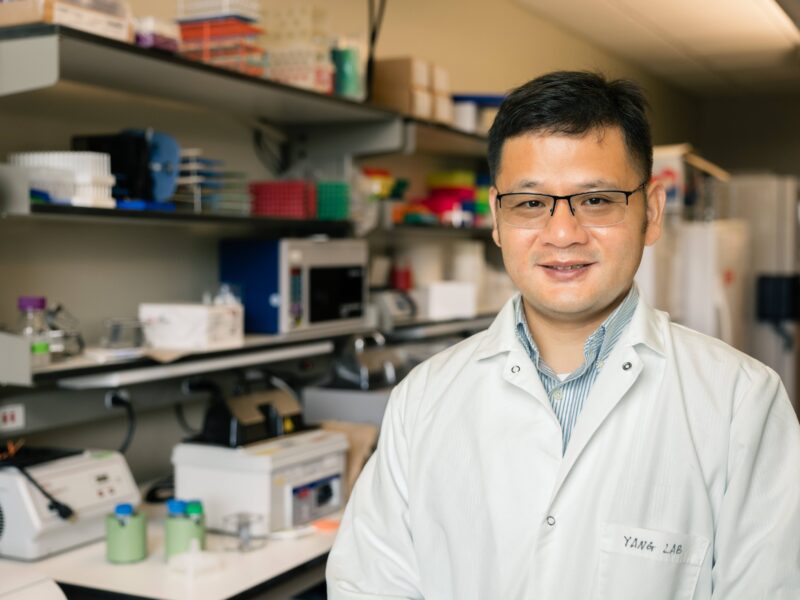
Is Smallpox Still A Threat?
A Texas A&M scientist has collaborated on a new report that warns of its potential return and urges heightened preparedness.

Workplace Law Expert Examines Starbucks Supreme Court Bid
Starbucks is seeking protection from being ordered to rehire baristas who say they were fired for union-promoting activities. Professor Michael Z. Green explains how the case could affect the right to organize unions in the U.S.

Subscribe to the Texas A&M Today newsletter for the latest news and stories every week.

UM cost of attendance climbs $5,000. Students to pay $93,000 next year
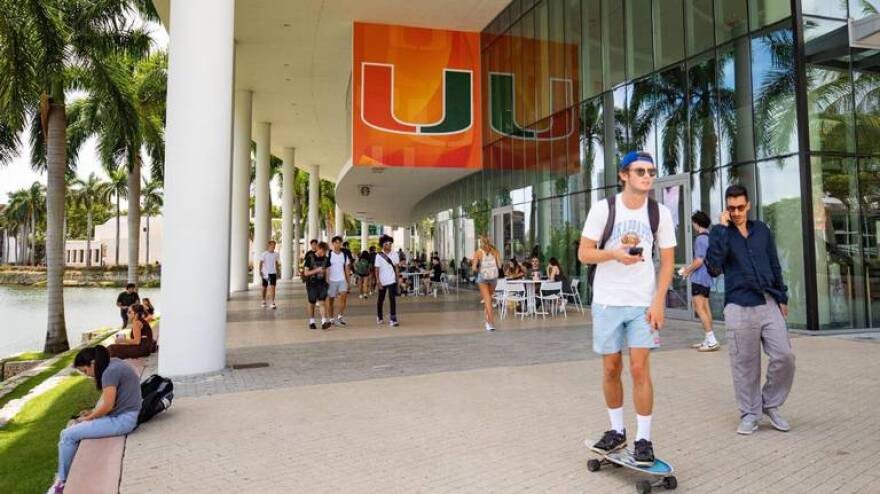
Attending the University of Miami for the 2024-2025 school year will cost students over $93,000. For students living on campus, this is a $5,226, or 6%, increase from the previous academic year.
The estimated cost of attendance includes several categories including tuition, transportation, housing and books.
Tuition, now at $60,718, has risen $2,614, making it the largest category increase.
This is $4,000 more than Harvard University which ranked third in the nation based on the annual U.S. News report . The University of Miami is currently ranked at 64.
The tuition price falls within the range of several other private universities and is lower than UM sister schools University of Southern California with a yearly tuition of $69,904 and Tulane University with a tuition of $68,678.
“In order to structure financial aid packages and offer them in time for students to make informed decisions about where to pursue their education, the University publishes an estimated cost of attendance each year. The demand for a University of Miami education remains at record highs, with more than 48,000 applications received this year,” the University of Miami said in a statement to The Miami Hurricane.
The next highest increase was in the food and housing category, approximately a $2,000 raise for both on and off-campus options. The University has has not made it clear whether this is a result of the new housing development Centennial Village, scheduled to open its first residential college this summer, or if it reflects inflated food costs throughout the country.
This rise follows recent COA increments that have surpassed the expected 3% - 4% annual increase universities typically warn students of ahead of time.
For perspective, rising seniors were given a $75,240 COA estimate when they committed to UM in 2021. This has increased by 24.4% just in their four years as students.
“I’ve been paying for full tuition and every time they raise it they never tell us. Then, they’re [UM] not flexible with payment dates,” junior Diego Zubillaga said.
“I genuinely don’t think I can afford to come back next year.”
The 6% raise also far exceeds the U.S. 3.2% rate of inflation rate recorded for the past twelve months.
Justin Ammaturo is a third year student in the School of Architecture, a five year program that allows students to graduate with a Master Degree, meaning he is responsible for an additional year of tuition. Ammaturo does not understand the true reasons behind the rise in tuition or why the University has not communicated this information with students.
“I think the University should tell us and that we should not have to find out on our own,” he said.
“It’s also not fair that they don’t tell the guarantor or parents that they’re upping tuition. Then we have to tell them ourselves.”
This, he explained, creates an awkward situation for students who in many cases have to ask their parents for additional funds to afford tuition.
The COA increase comes at the same time as students are grappling with an adjustment to the University’s financial aid policies that will limit federal and state aid for students taking courses outside their main degree of study.
This change is expected to cost students trying to complete their double majors or minors thousands of dollars in lost aid or push them to graduate early.
The story was originally published by The Miami Hurricane , the student newspaper of the University of Miami in Coral Gables, as part of an editorial content partnership with the WLRN newsroom.

- Faculty of Education
- [email protected]

Your Journey To Excellence in Education begins here
Portal maya, portal spectrum, brochure pg, latest news, upcoming events.
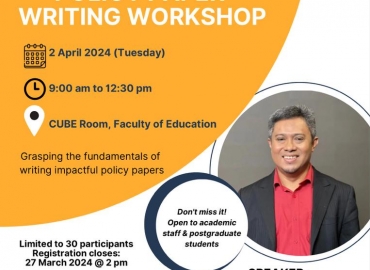
EDU TALK : Policy Paper Writing Workshop
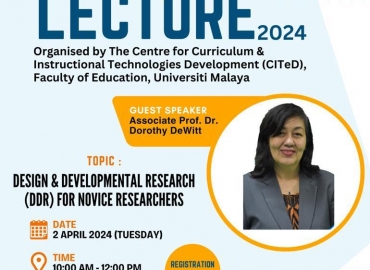
Design & Developmental Research (DDR) For Novice Researchers
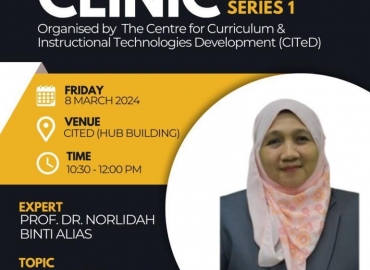
Expert Clinic 2024, Series 1 & 2
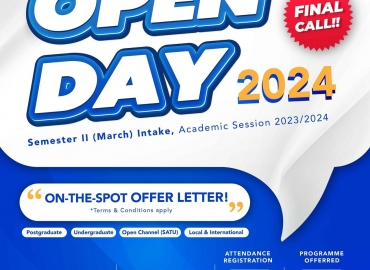
Universiti Malaya Open Day

International Conference On Sustainability Education Development 2023 (ICSED 2023)
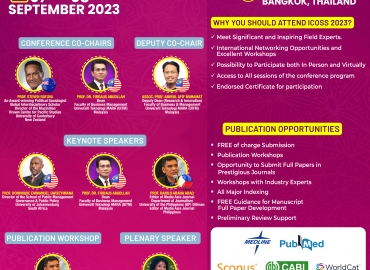
Sosial Sciences (ICOSS) 2023
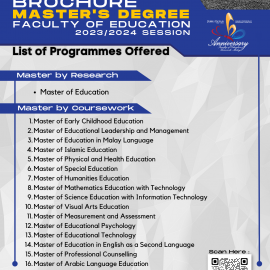
Brochure Master's Degree Faculty of Education 2023/2024 Session
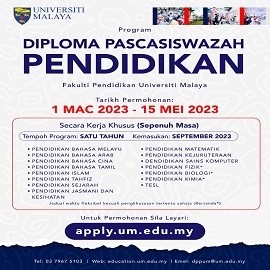
DIPLOMA PASCASISWAZAH 2023
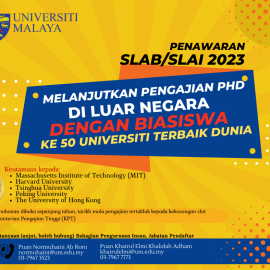
SLAB / SLAI 2023
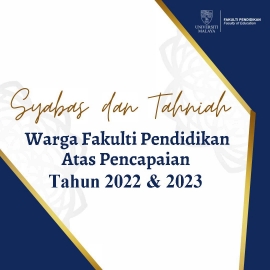
Staff Achievement

IMAGES
VIDEO
COMMENTS
List of Master Programmes Offered Semester 1, 2023/2024 Session. Programme by Research. Master Of Education. Programme by Coursework. Master of Professional Counselling. Master of Education in English as a Second Language. Master of Arabic Language Education. Master of Bahasa Melayu Education. Master of Mathematics Education with Technology.
School of Education and Human Development 5202 University Drive Merrick Bldg. Rm. 312 Coral Gables , FL 33124
The Education and Social Change M.S. Ed. program track is made up of 10 courses (3 credits each) or 30 credits. Following the University of Miami's policies for credit transfer, it is possible to transfer in and apply up to six (6) graduate credit hours from an accredited institution's similar course content listed below to meet the program's ...
Teachers who apply for a GRE waiver must submit a 3-page essay on an important topic in education. International Applications. All international applications must provide additional information and meet additional requirements as required by the UM Graduate School and the Office of International Student and Scholar Services.
TOTAL ESTIMATED PROGRAM COST. WHAT MOST STUDENTS PAY. Master of Education in Applied Learning Sciences. $2,421. 30. $72,630. $43,578. *This is the total estimated cost of the program before potential financial assistance. †Based on the UM 2023-2024 UOnline Tuition and fees rate.
Today, we're the only higher education graduate program in which EM is at the base of every concentration - as well as the only program that focuses on predictive modeling. More than 90% of our master's students add value to their M.S.Ed. by concurrently earning a certificate outside their chosen track. Practical experience opportunities ...
The Master of Arts in Higher Education with a focus on Diversity and Social Justice in Higher Education gives students the tools for increasing their knowledge and skills regarding diversity and social justice in higher education. It equips students to address these issues within their careers and other spheres of influence.
The Master of Education is designed for a range of education professionals who want to develop or extend their expertise in education so they can move into leadership, specialist or coordinator positions. With eight specialisation areas, ranging from arts education to leadership and management, students have the opportunity to become true ...
Master's Degree - Application for Semester 1, Session 2024/2025 is now OPEN. * Deadline for Coursework / Mix Mode is 30 August 2024 * Application for Research Semester 2, Session 2023/2024 is still open until 31 May 2024. 1) Applications must be submitted online through our application portal at https://apply.um.edu.my 2) Choose programme(s).
The M.A. in Education is a 30-credit hour program with courses offered in the evening and online. The M.A. in Education offers the opportunity to pursue an additional endorsement in addition to earning a graduate-level degree. Students could earn a master's degree with or without an endorsement. A valid Michigan Teaching Certificate is only ...
Master of Education. ADMISSION REQUIREMENTS. a. Bachelor of Education with Honours or equivalent from any institution of higher learning recognized by the UUM Senate with a CGPA of 3.00 or higher; OR. b. Bachelor's Degree with Honours with a CGPA of at least 2.75 and a 3-year teaching experience. SPECIFIC ADMISSION REQUIREMENT.
253 - Fairlane Center South. 19000 Hubbard Drive. Dearborn, MI 48126. View on Map. Phone: 313-593-5090. [email protected].
The Master of Education (Early Childhood and Primary Education) in Early Childhood Education and Care offers the opportunity to educators who seek to advance their values, knowledge, and skills in this area of study through research. ... Phone: +356 2340 3058 Email: [email protected]. Address: Faculty of Education, University of Malta, Msida MSD ...
The Master of Education (M.Ed.) is a professional degree for teachers and those who work in the human and social service professions, community education, or post-secondary education. The curriculum is based on the work done as teachers, leaders, and change agents in formal, non-formal, and community-based settings. The program is designed with the student in mind, making it possible to earn a ...
The College of Education, Health, and Human Services of the UM-Dearborn offers a Master of Arts in Education degree. This is a degree, which is designed for educators who desire to fulfill all requirements for a University of Michigan master's degree, including residency, at UM-Dearborn. Courses are offered in the late afternoon, the early ...
Learn. Investigate. Evaluate. Reflect. Lead. Inspire.The Master of Education (M.Ed.) is a professional degree for teachers and those who work in the human and social service professions, community education, or post-secondary education. The curriculum is based on the work done as teachers, leaders, and change agents in formal, non-formal, and community-based settings.
A Bachelor of Education Degree with a cgpa of at least 3.00 or an equivalent degree or; A Bachelor's Degree with a cgpa of at least 3.00 and; Post graduate diploma in education with a Cgpa Of 3.00;Or; A teaching qualification recognised by the University; and; Teaching experience with an institution recognised by senate; or
Amanda Kaine, Master's Degree in Biomedical Sciences, Class of 2024, and #MedCanes Ambassador In a world where self-doubt echoes through the minds of many, society often advises drowning out these thoughts with more work, an approach that, ironically, leads to greater exhaustion.
Top graduate schools in Wisconsin landed on the latest U.S. News & World Report list ranking more than 2,000 programs across the country. U.S. News & World Report published its 2024-'25 report in ...
The IU School of Education has been recognized again as one of the best graduate schools in education across the country by U.S. News and World Report's 2024-2025 "Best Graduate Schools.". Overall, the IU School of Education is ranked #34, two spots higher than last year, with eight graduate specialty programs ranked in the top 20.
The learning outcomes are defined in terms of: Knowledge: in the context of EQF, knowledge is described as theoretical and/or factual. Skills: In the context of EQF, skills are described as cognitive (involving the use of logical, intuitive and creative thinking) and practical (involving manual dexterity and the use of methods, materials, tools and instruments).
Graduate student Elizabeth Deese, left, and junior Erin Burnett embrace sustainability efforts on campus. ... Burnett is now the UM Green Athletics Liaison, and her mission is to bring the message of sustainability to athletes and fans. "It is really about being mindful to the environment," she said. Her goals are to make sure athletes and ...
Graduate programs in several disciplines at the University of Massachusetts Amherst rank among the best in the country as reported in the 2024 edition of U.S. News & World Report's Best Graduate Schools.. Each year, U.S. News ranks more than 800 institutions with a variety of graduate programs in six prominent fields: business, nursing, education, engineering, law and medicine.
Texas A&M University is one of the nation's leaders in graduate education, according to the latest rankings from U.S. News & World Report.. The university has 33 programs in the Top 50 spanning across agriculture, business, computer science, education, health, law, political science, public affairs, psychology, science, and veterinary medicine.
Attending the University of Miami for the 2024-2025 school year will cost students over $93,000. For students living on campus, this is a $5,226, or 6%, increase from the previous academic year ...
The University of Florida has cultivated a tradition of transformation, producing practical solutions to society's greatest challenges while leaving a legacy of innovation for future generations. Building upon previous achievements, the college continues to ascend the ranks, leaping two spots to No. 8 among public education colleges in the 2024-2025 Best Graduate Education Schools by U.S ...
Universiti Malaya Open Day. 08.00 AM-05.00 AM ... International Conference On Sustainability Education Development 2023 (ICSED 2023) 09.00 AM-12.30 PM. Faculty of Education, UM. Read More . Sep 07, 2023. Sosial Sciences (ICOSS) 2023. 09.00 AM-05.00 PM. Faculty of Education. Read More . TAKE A TOUR. Highlights . Brochure Master's Degree Faculty ...